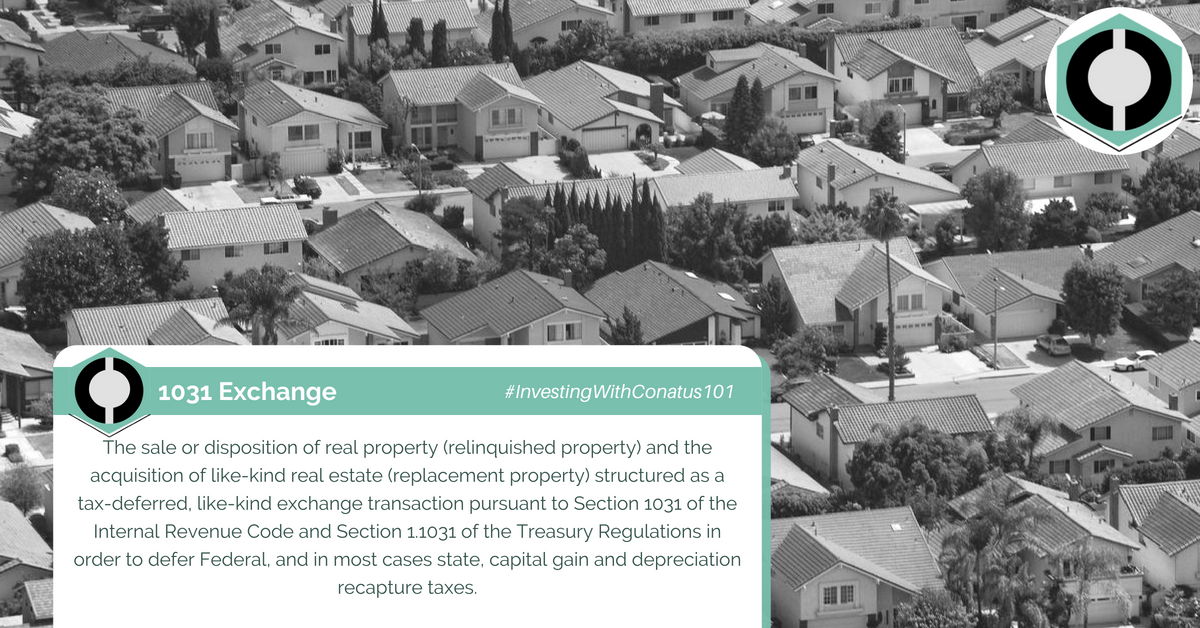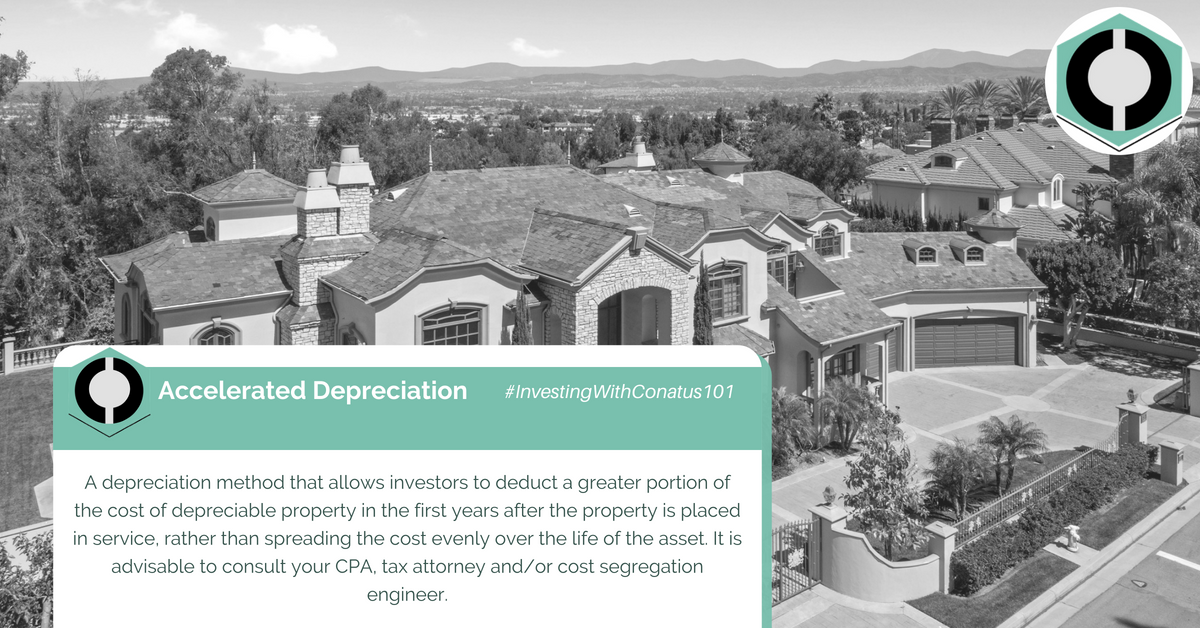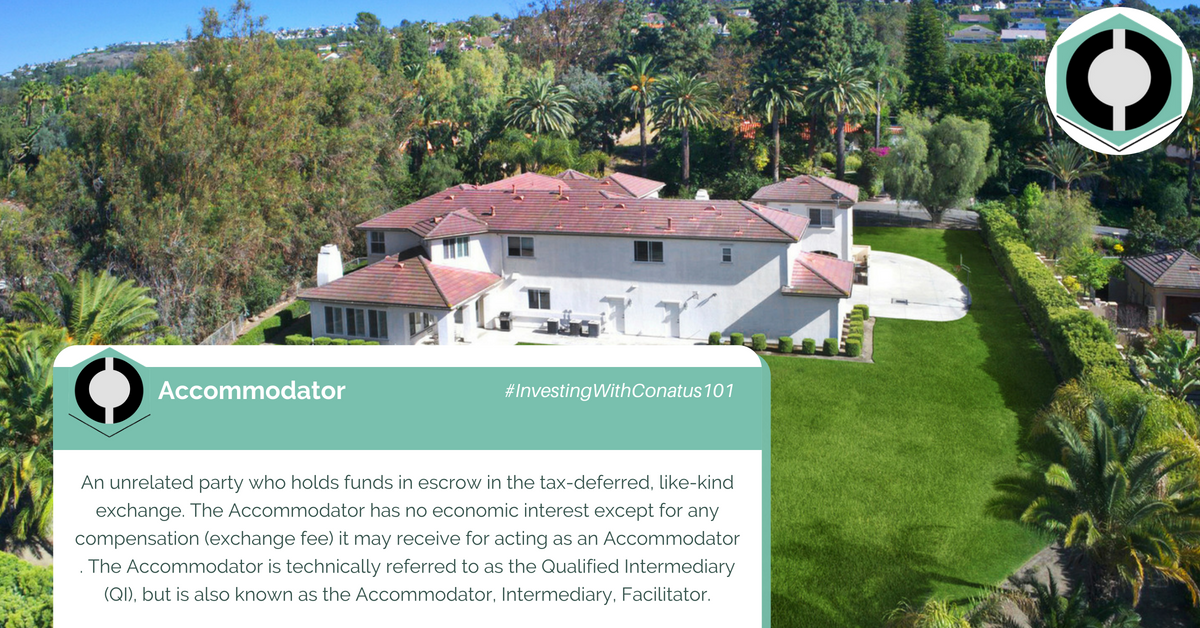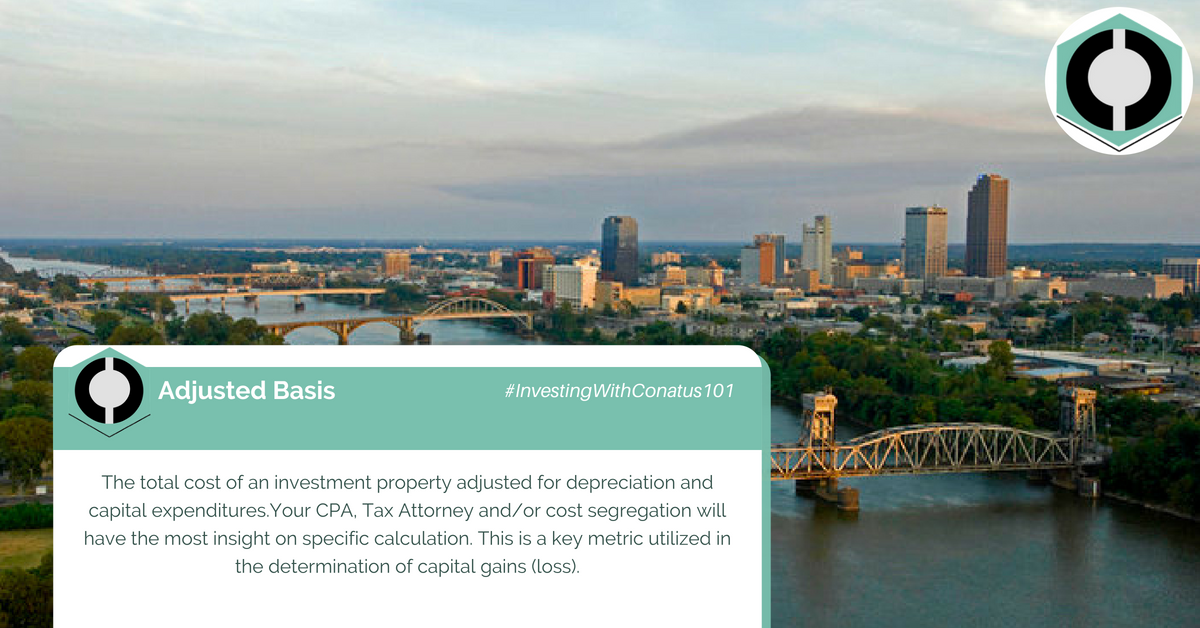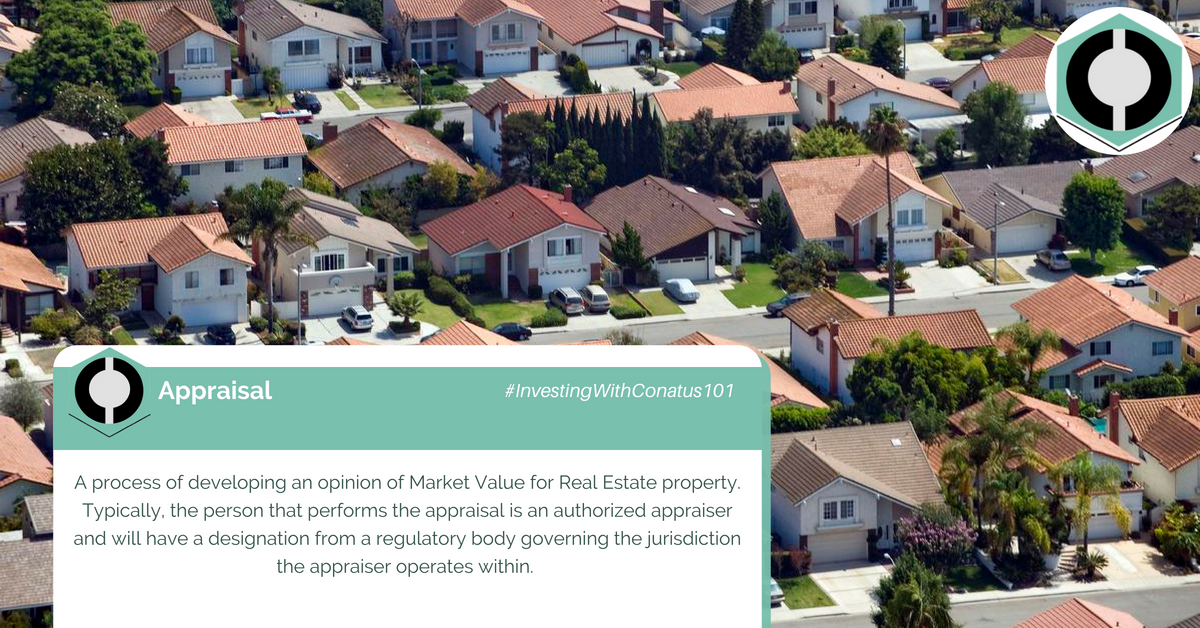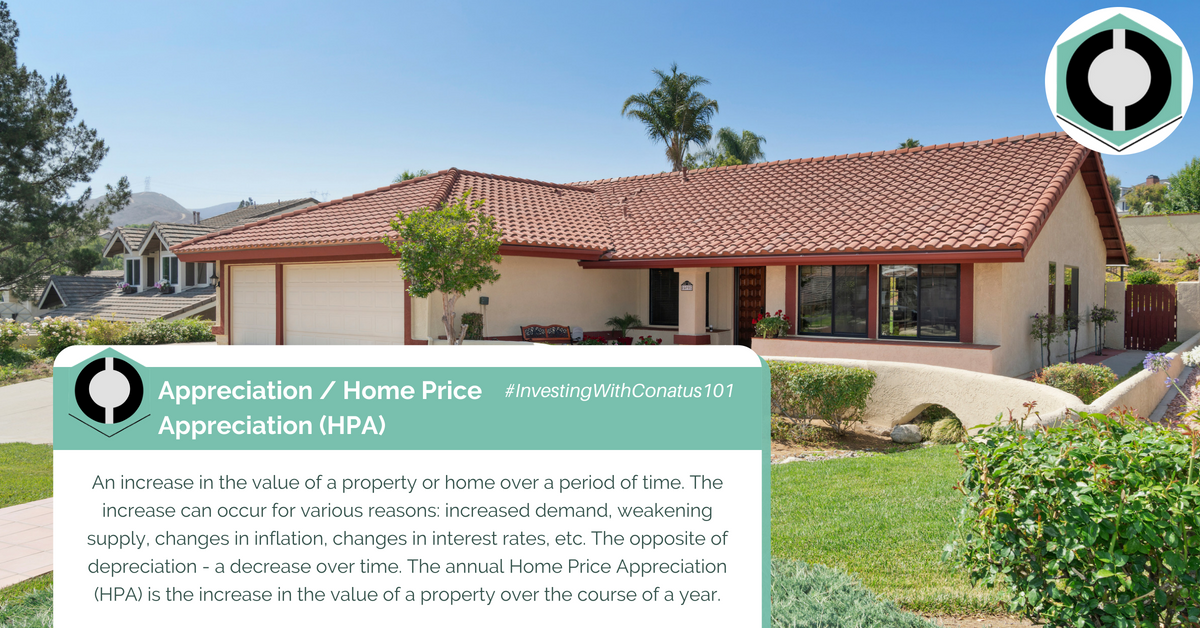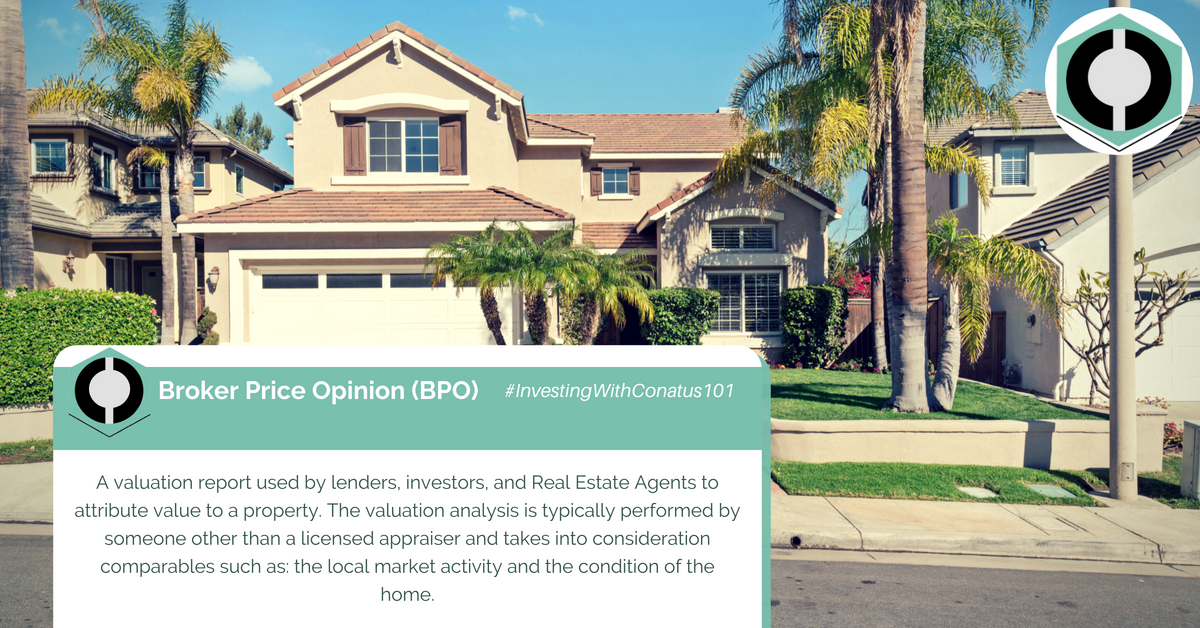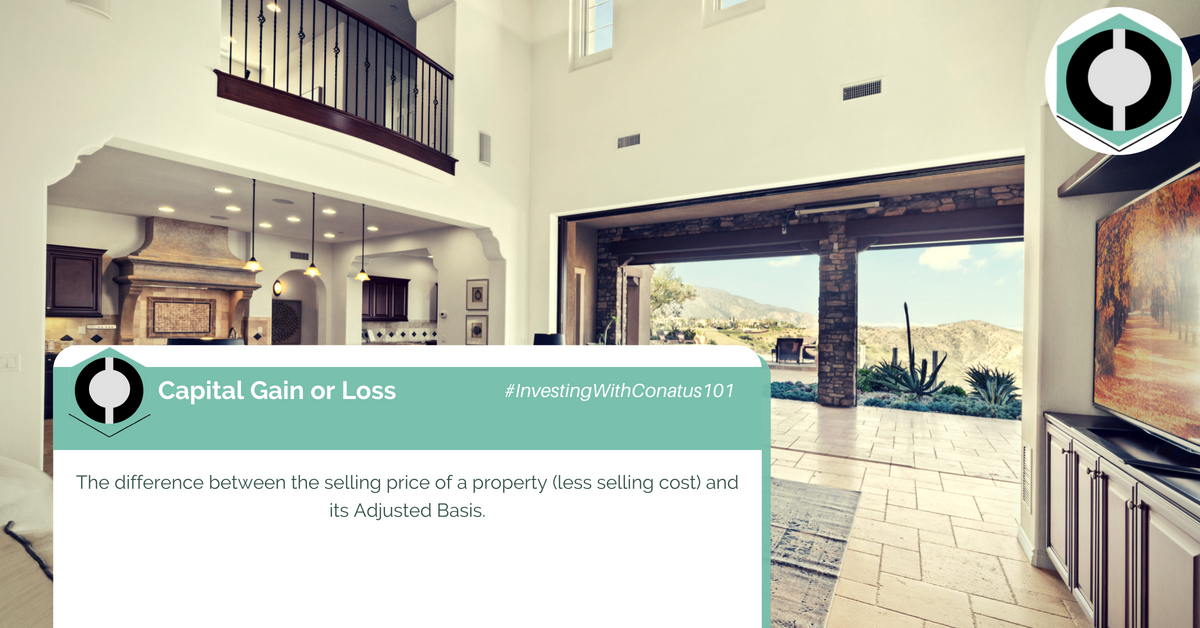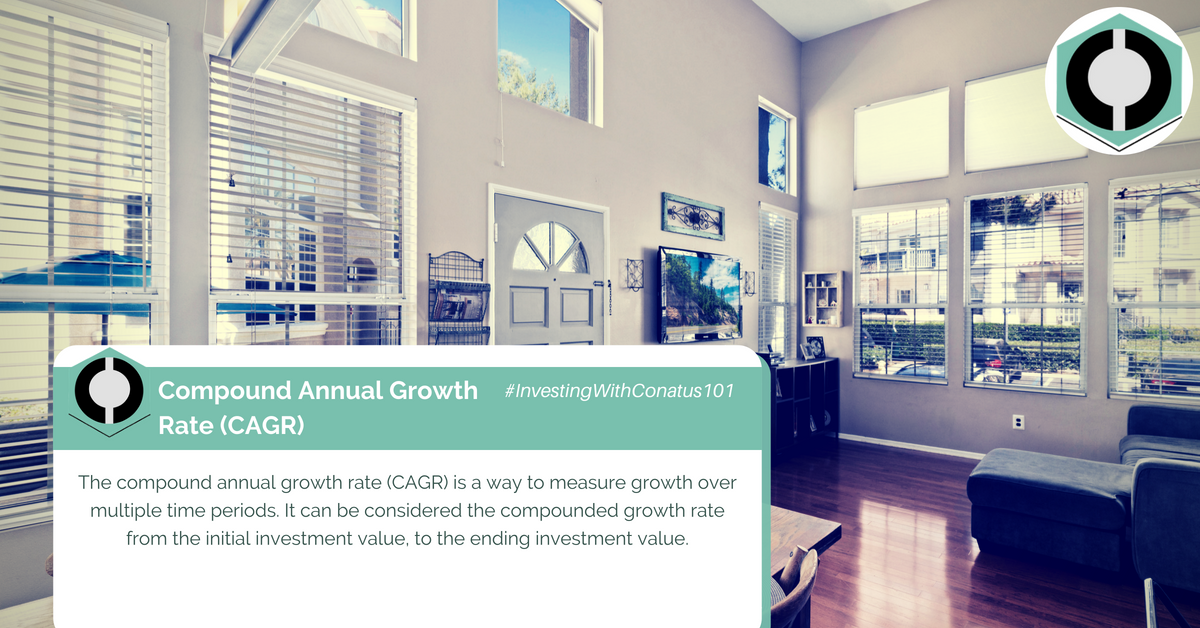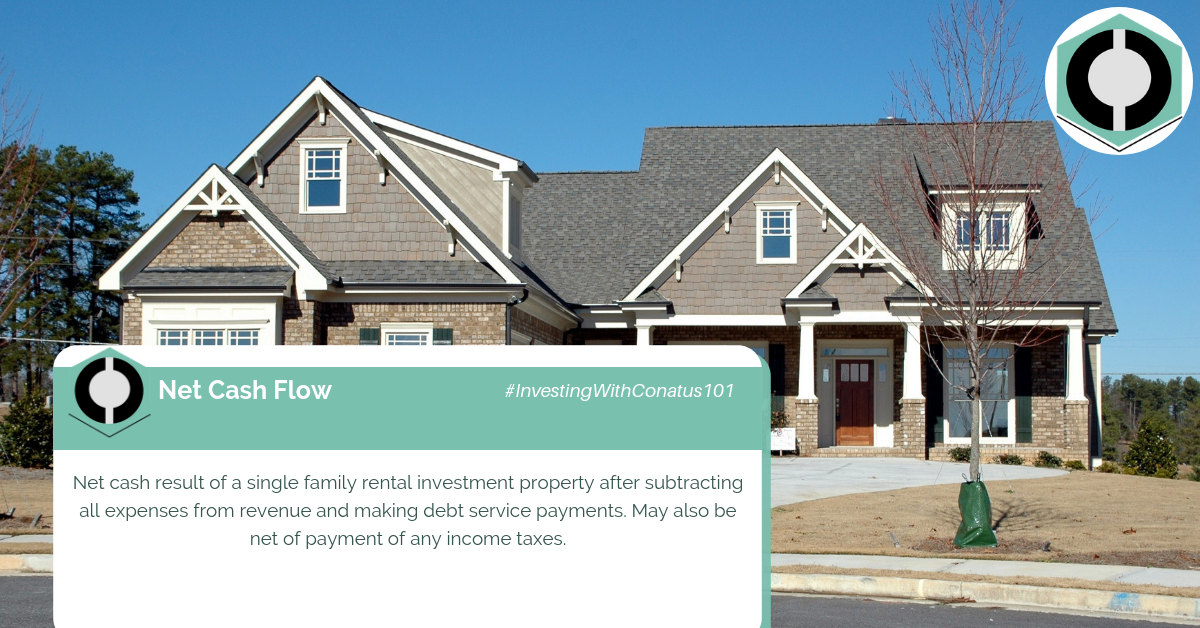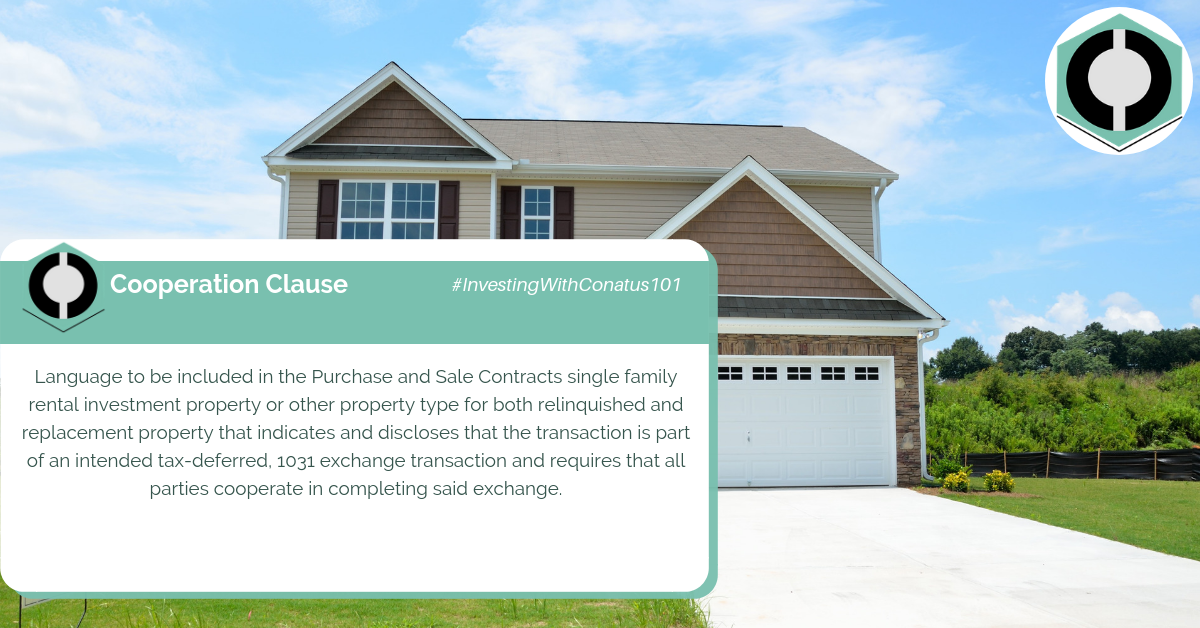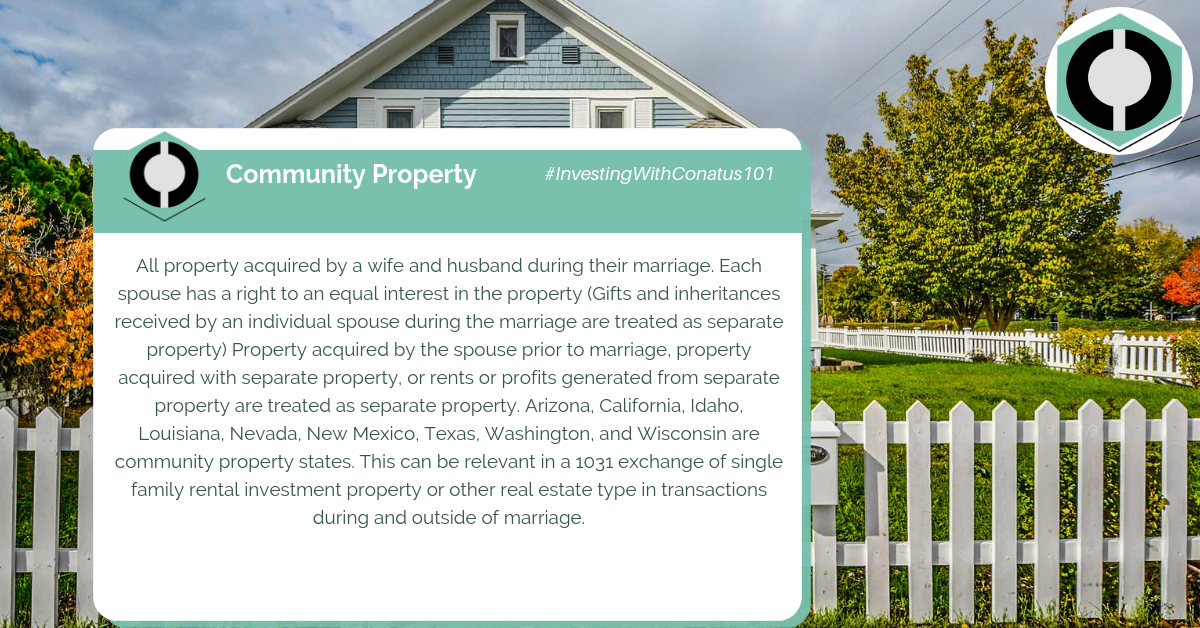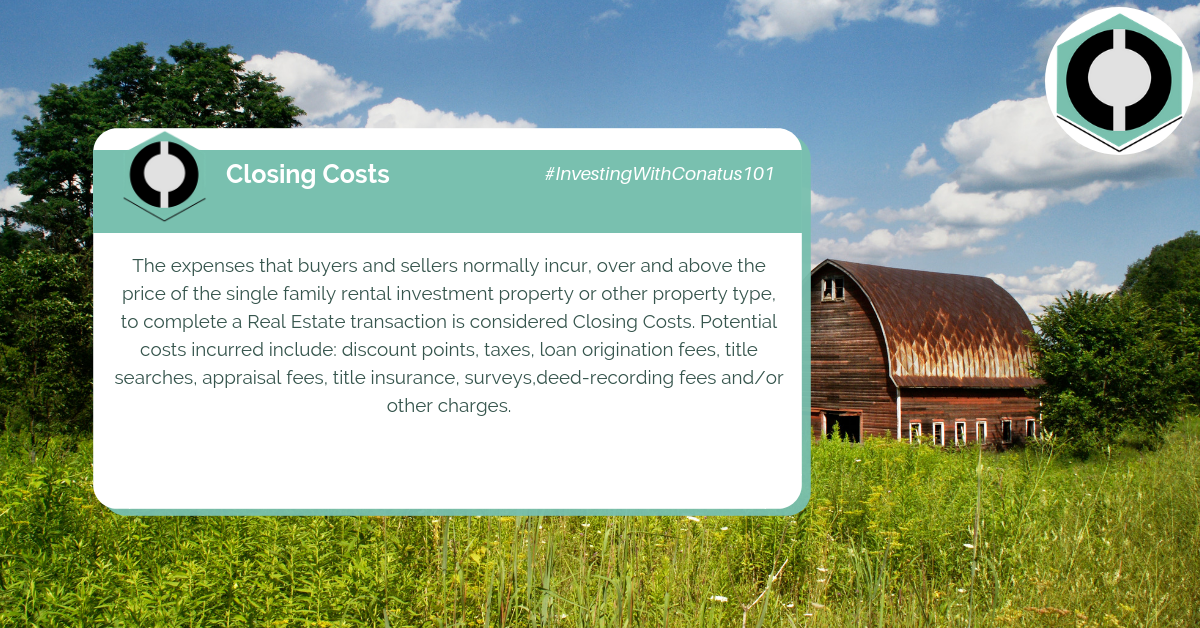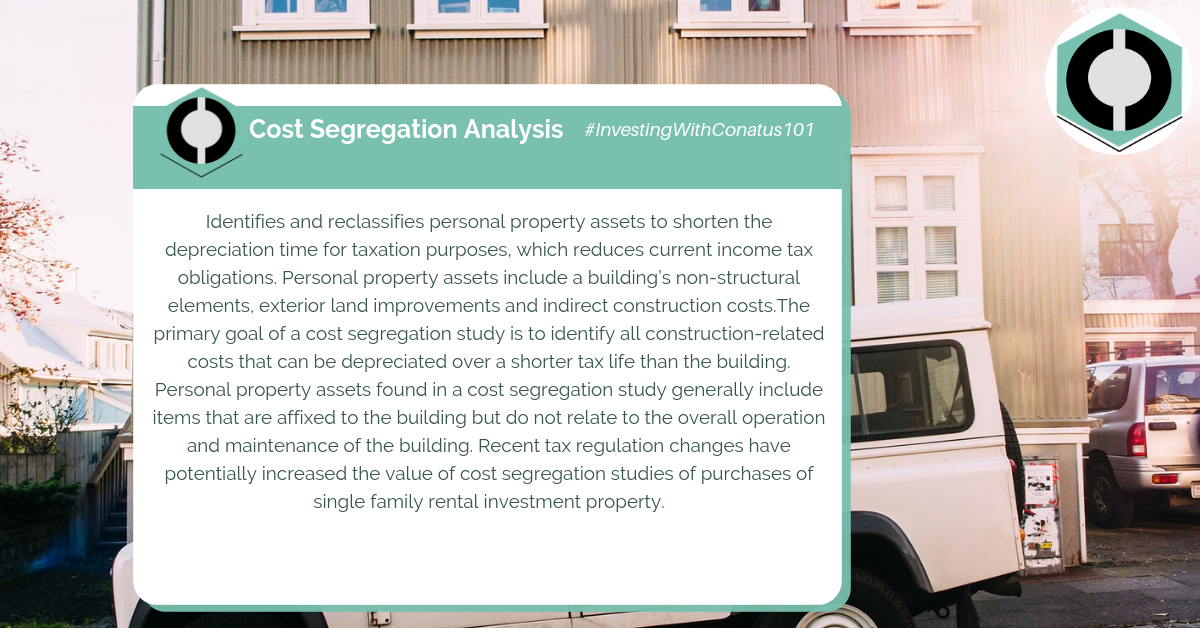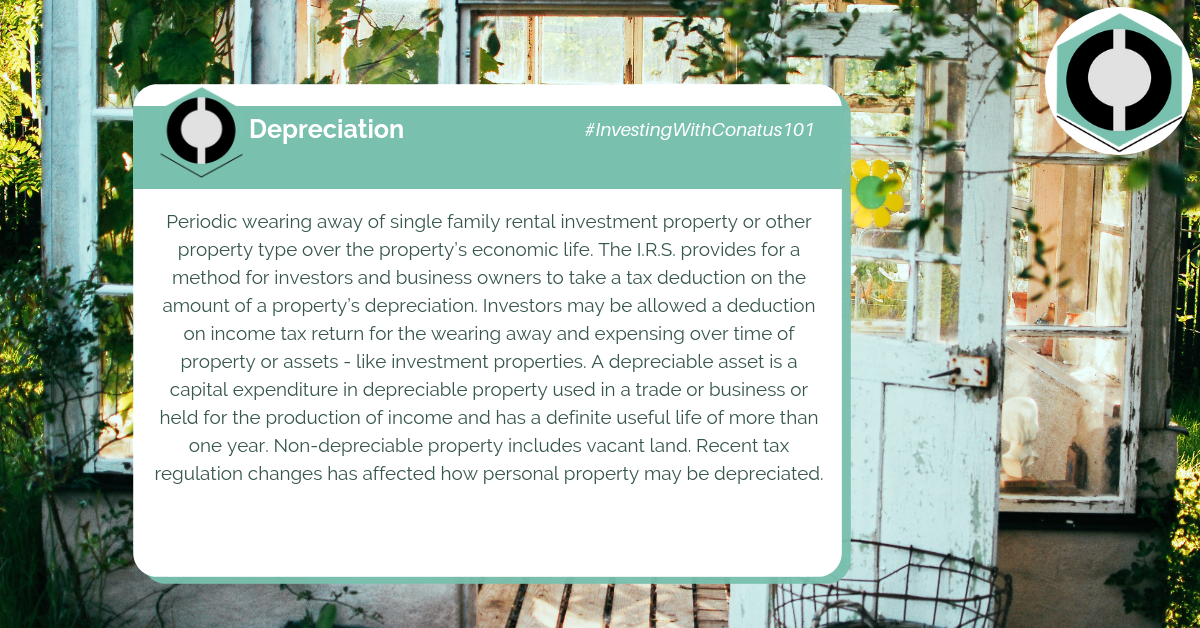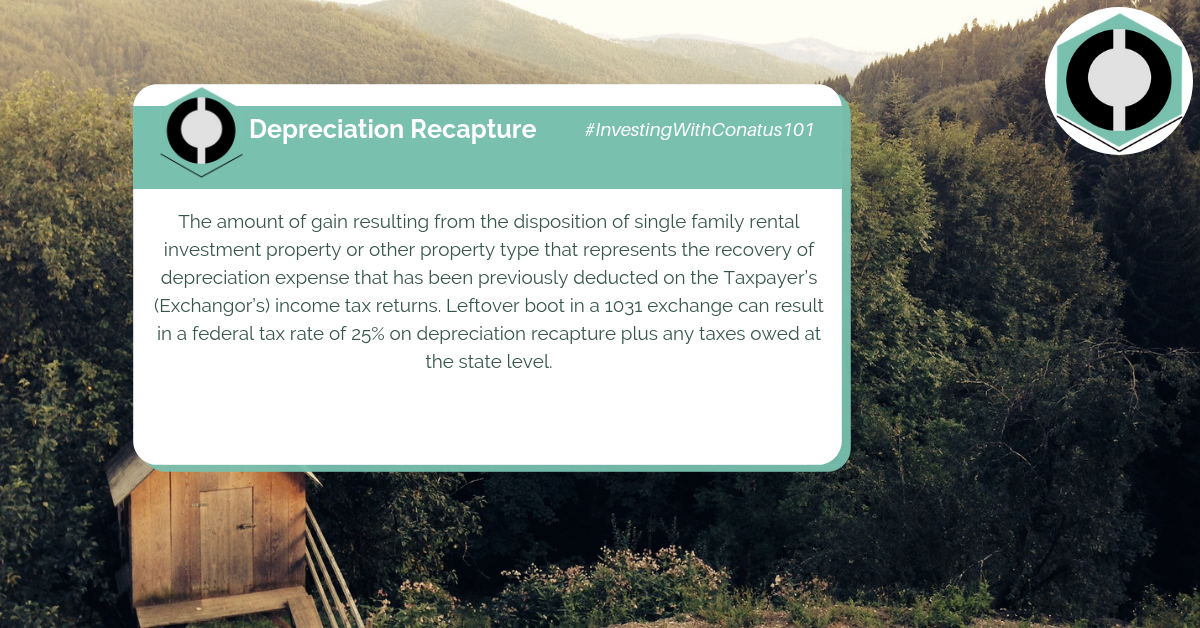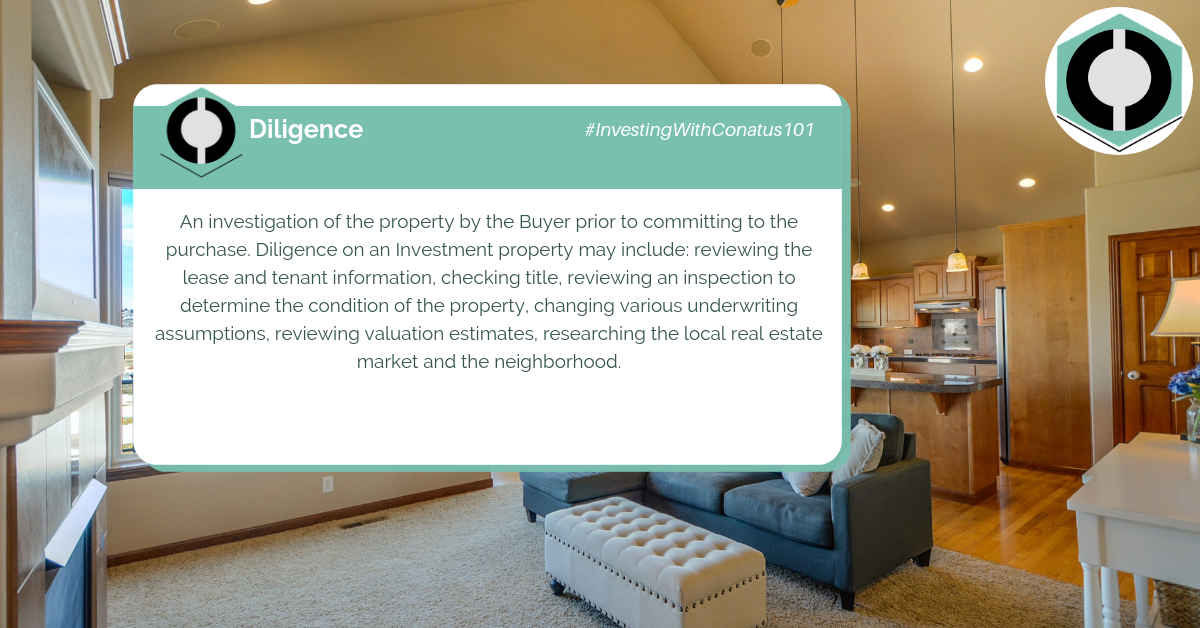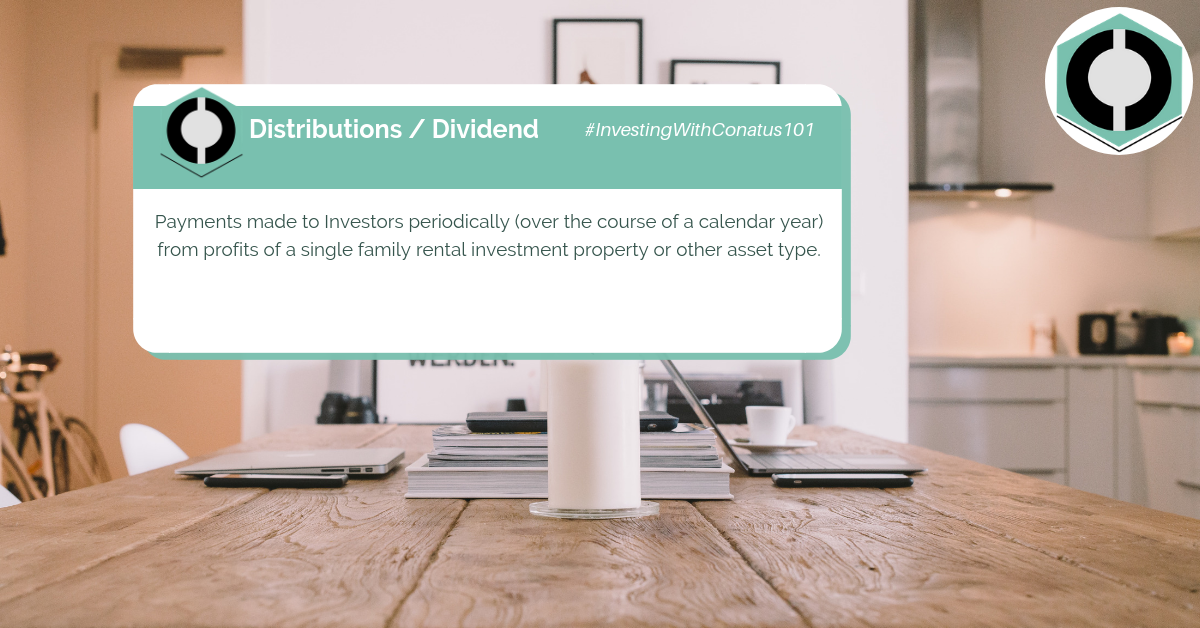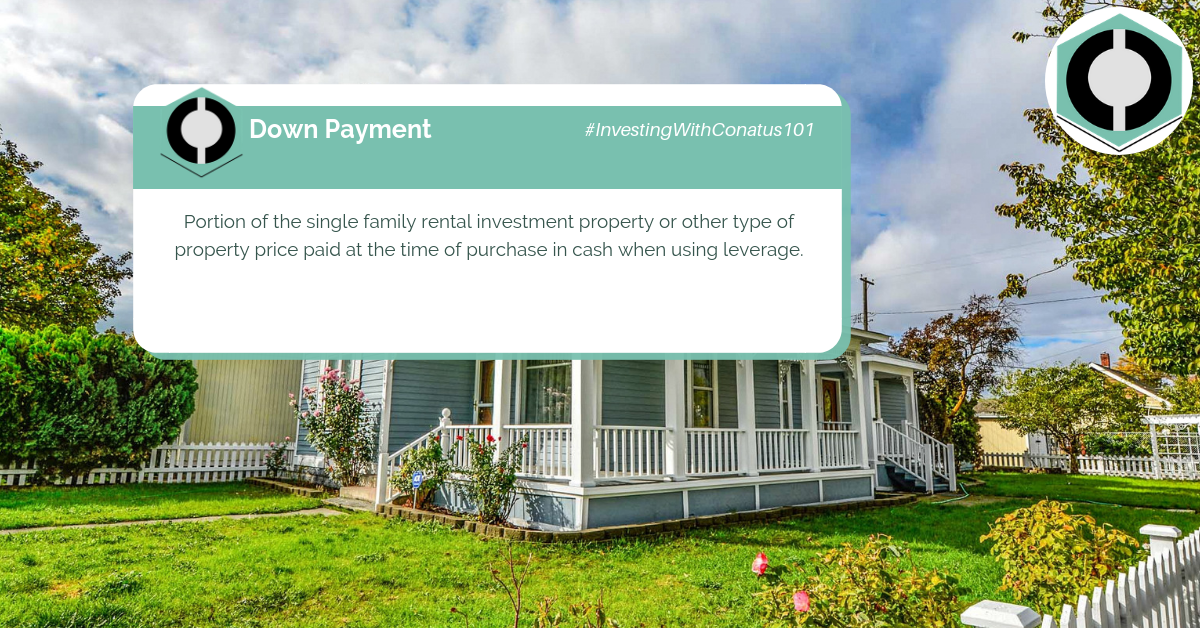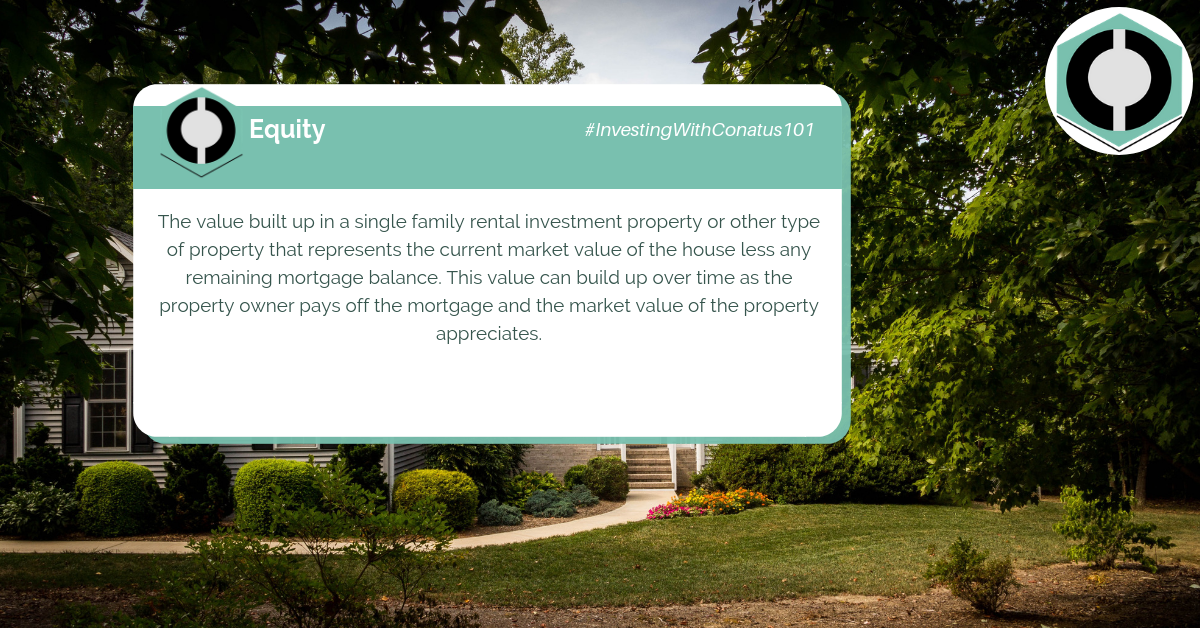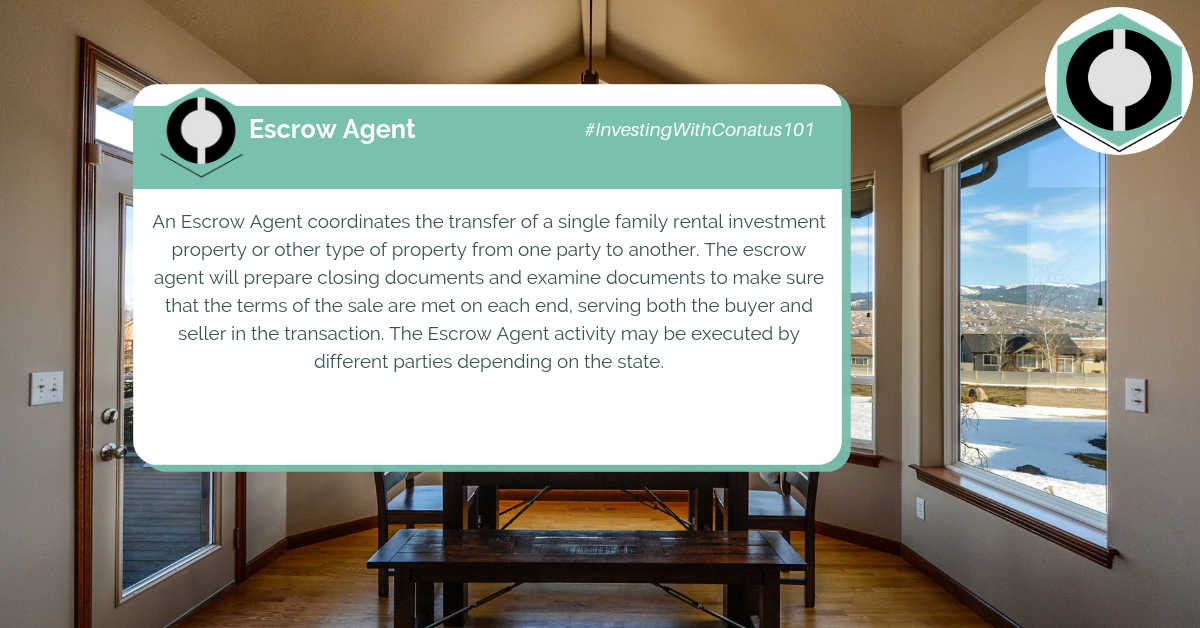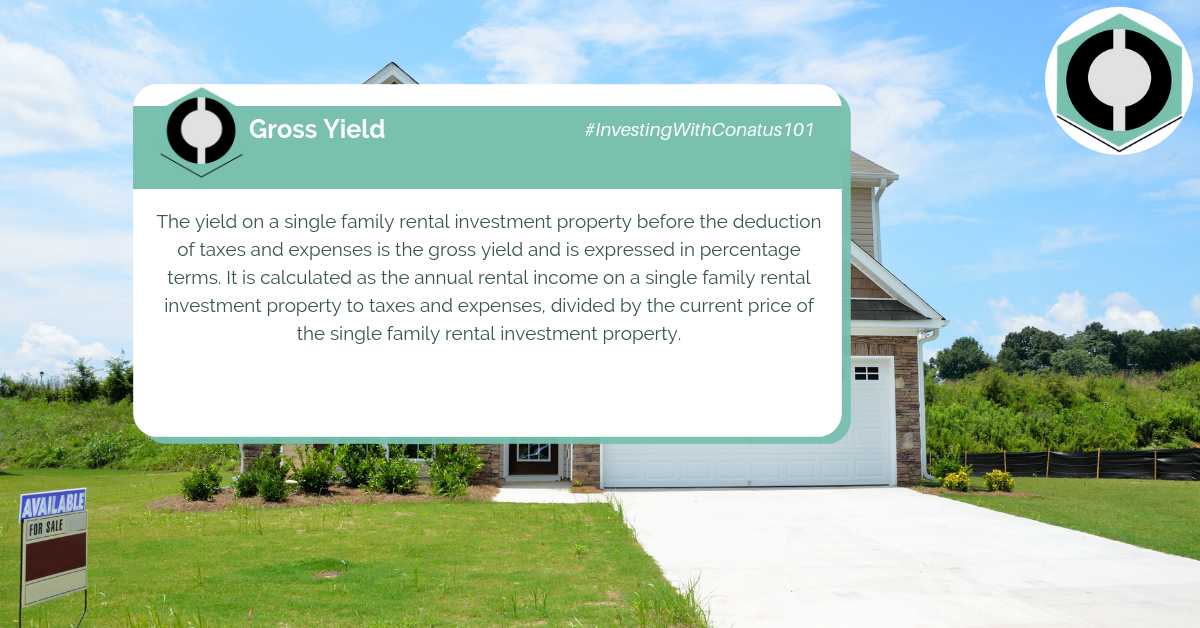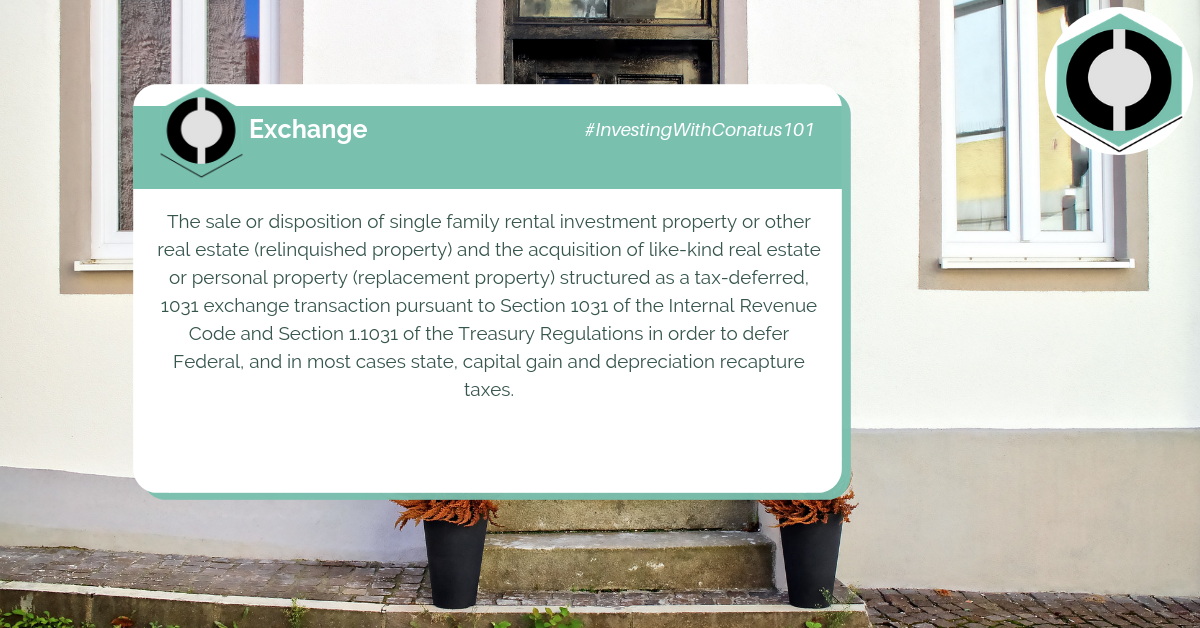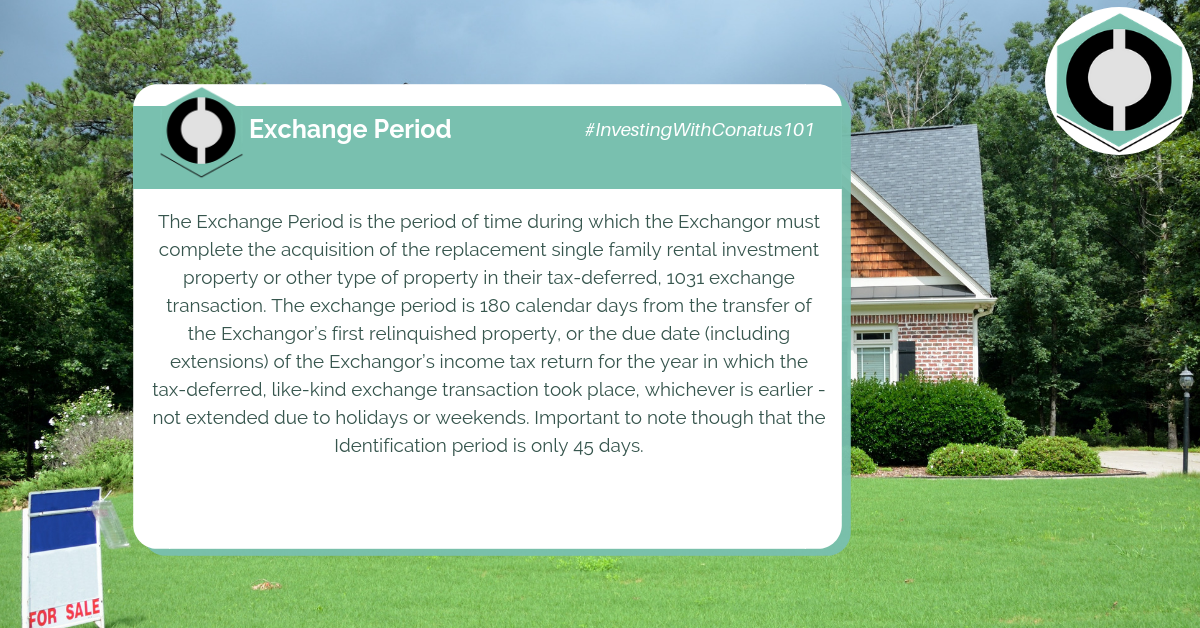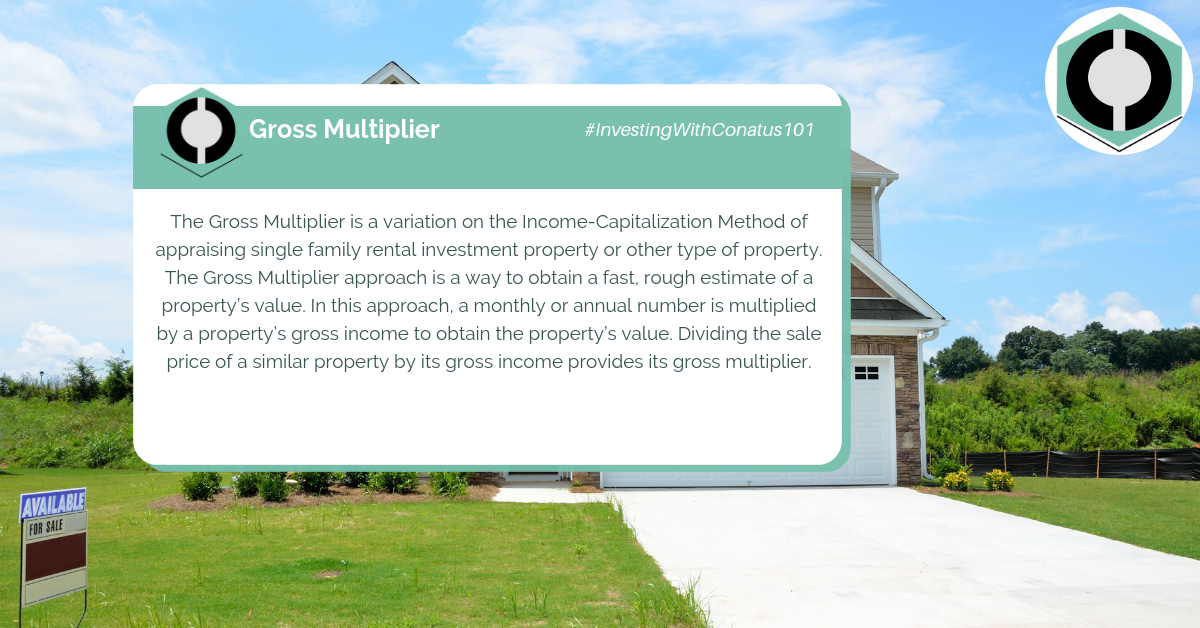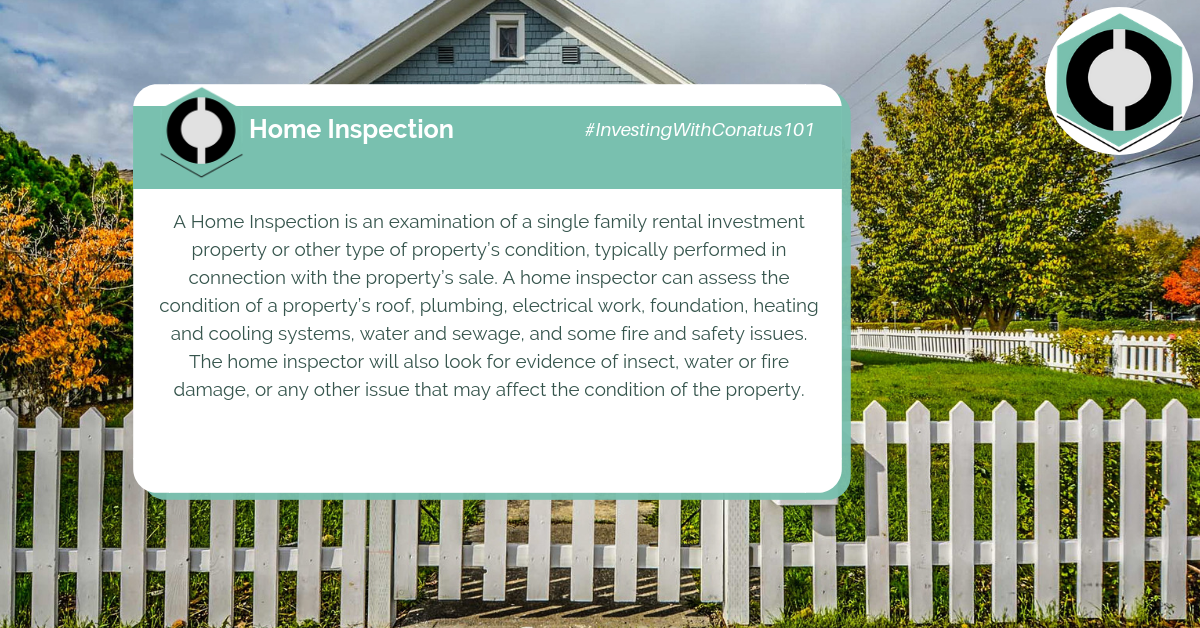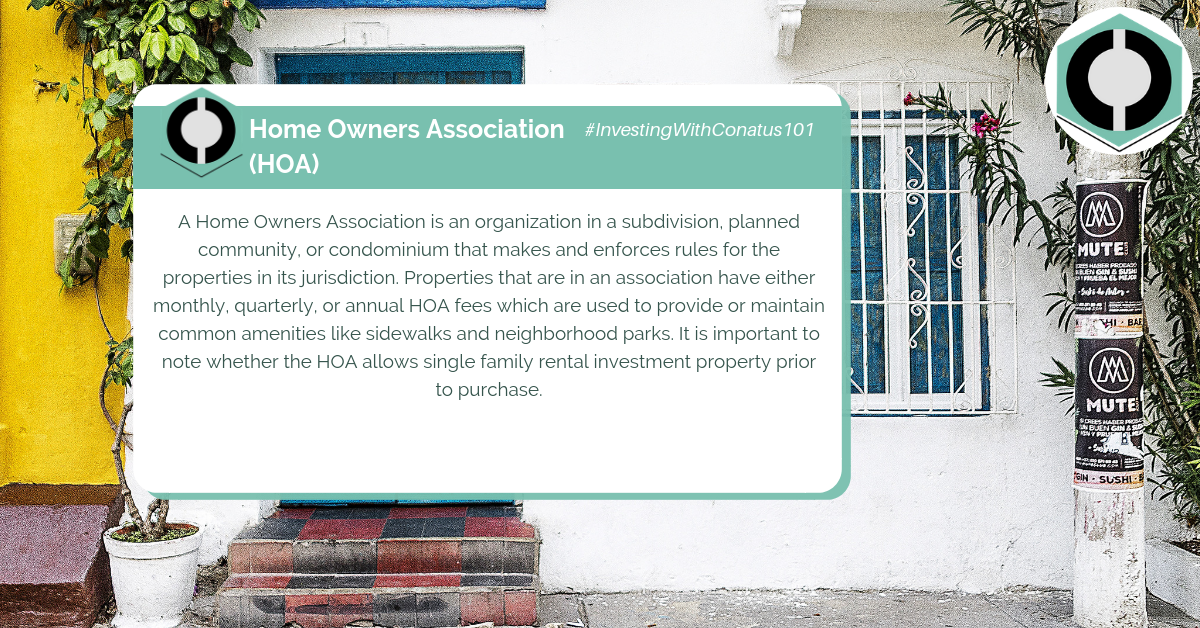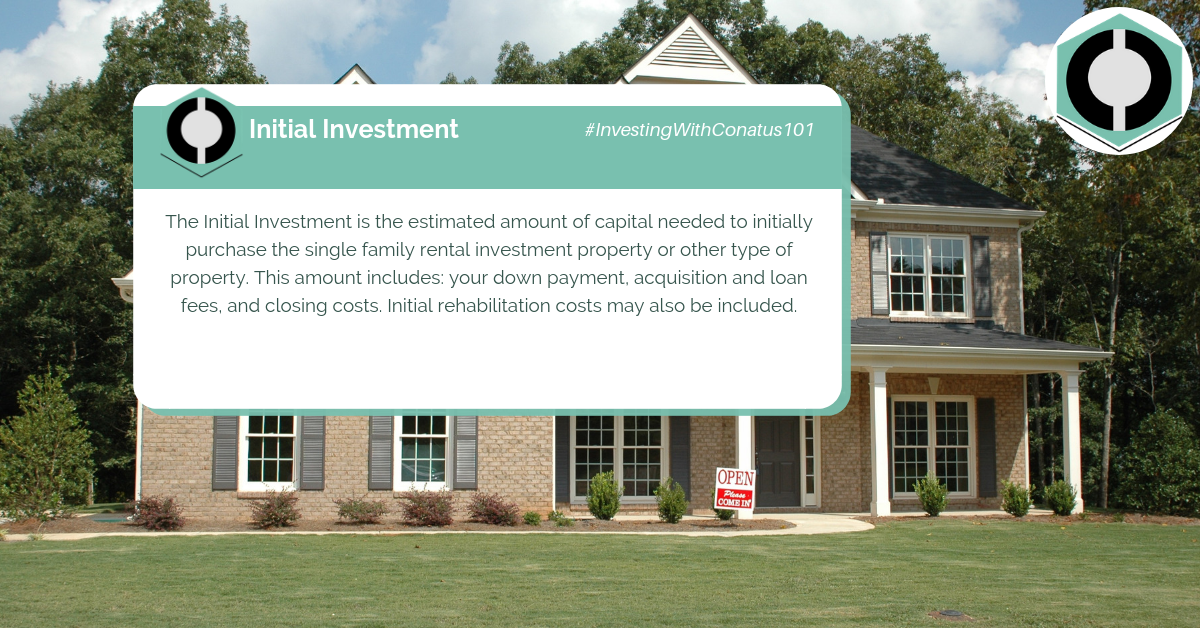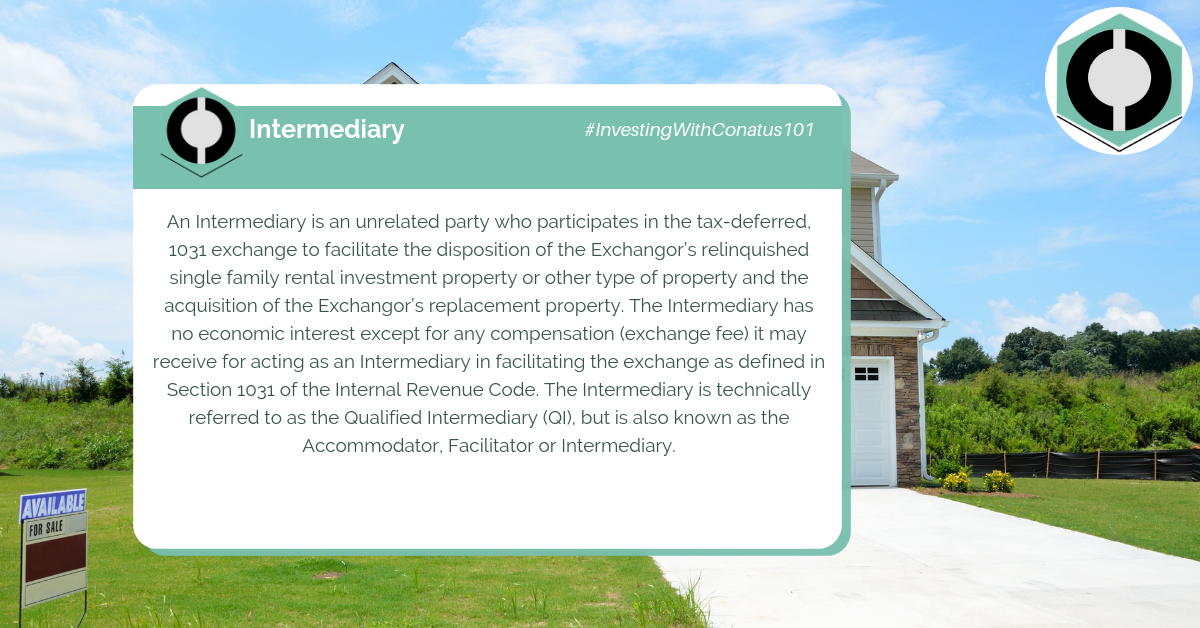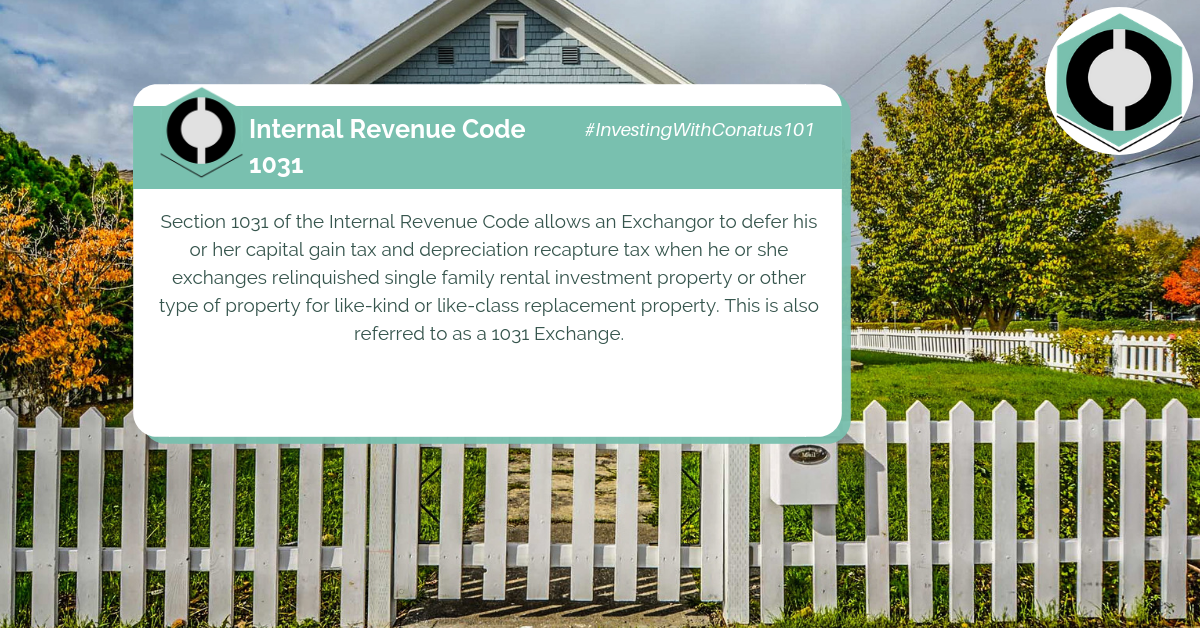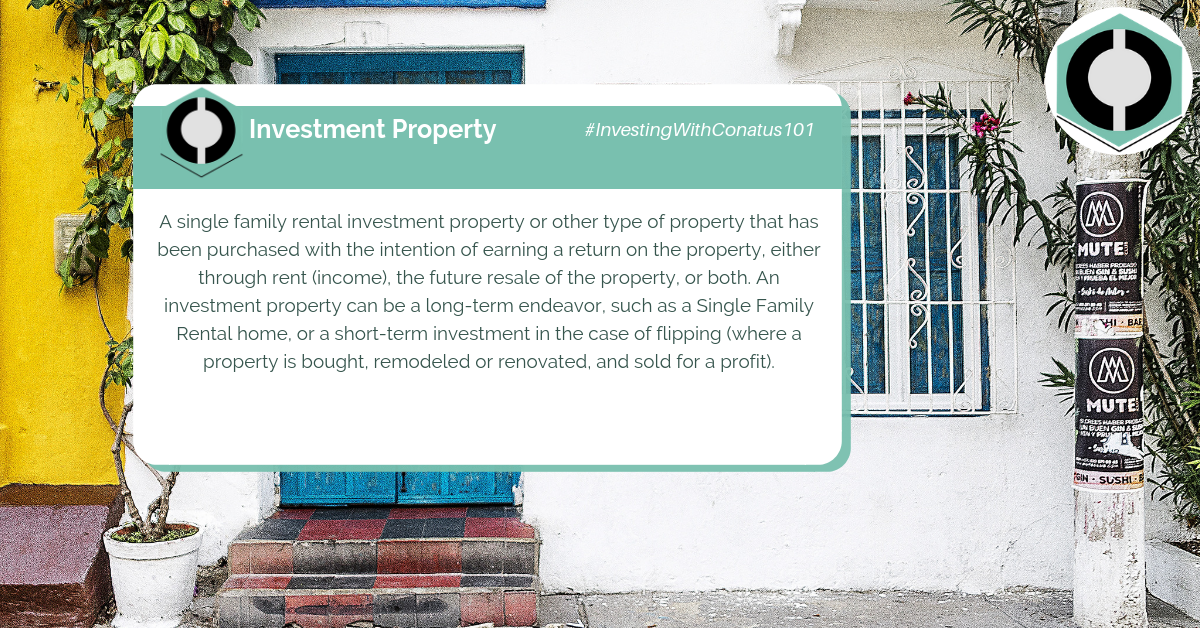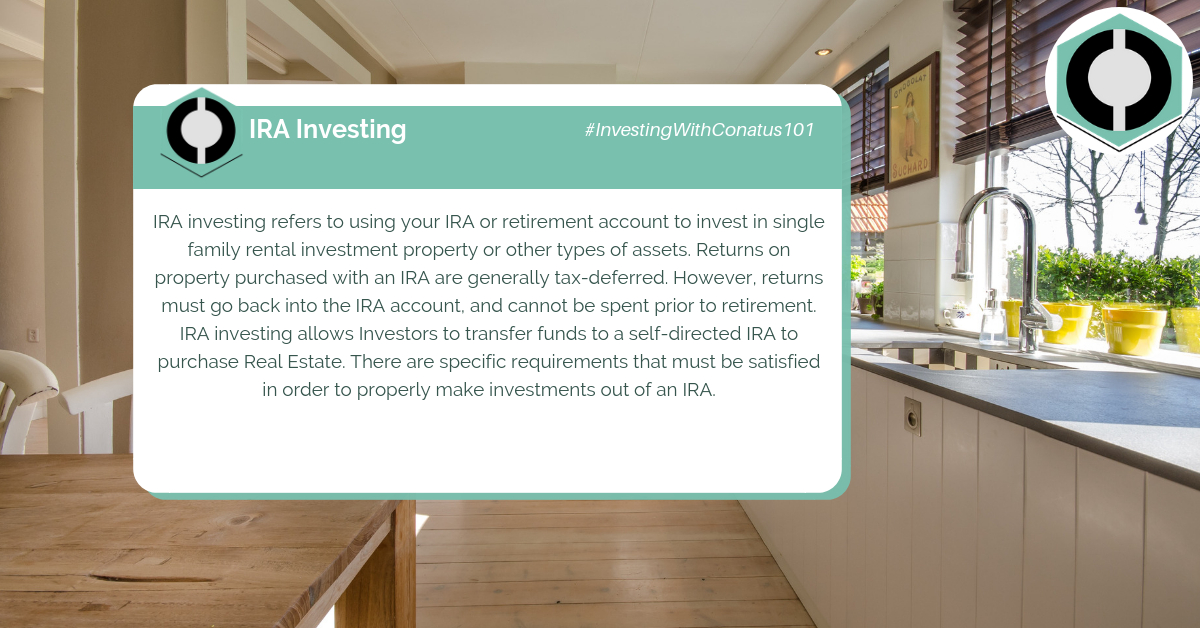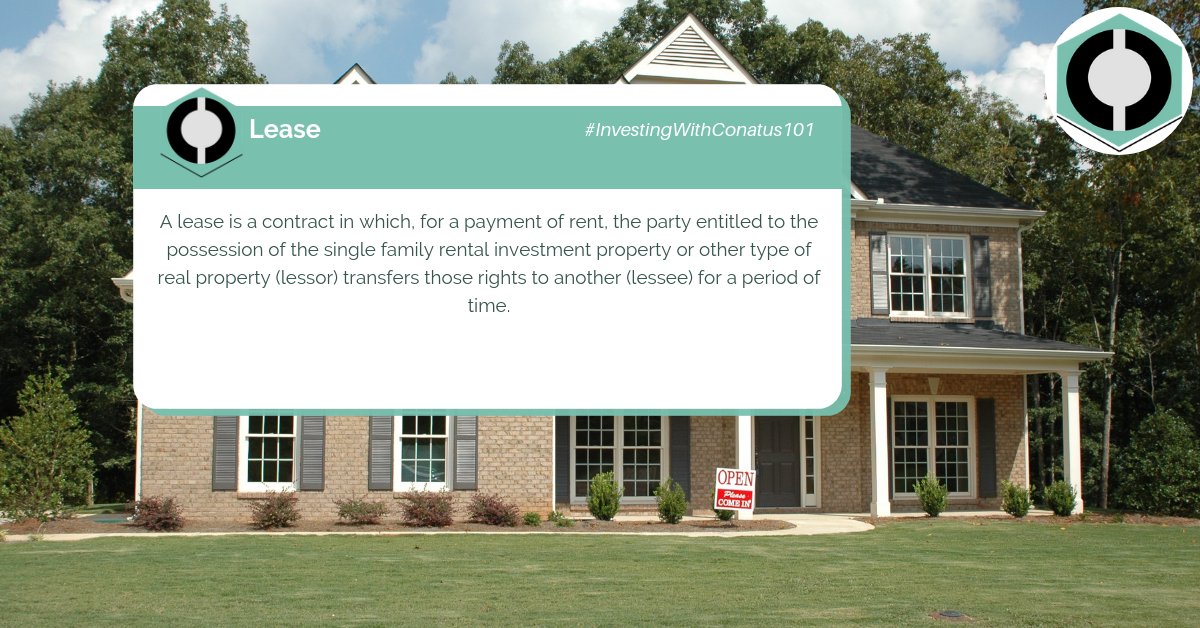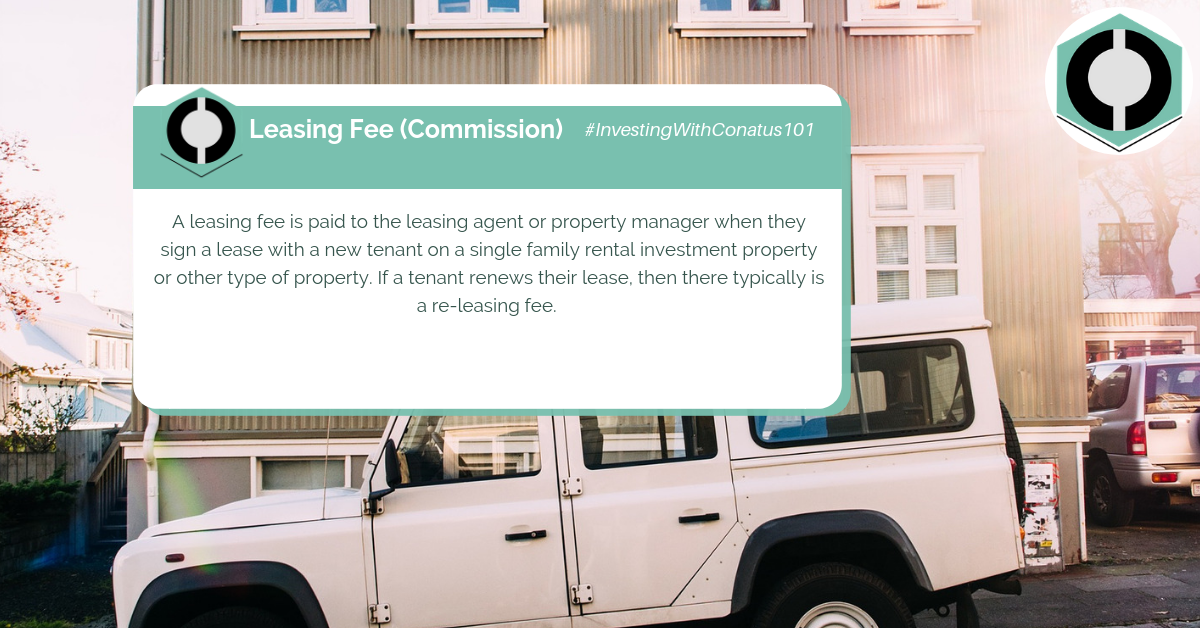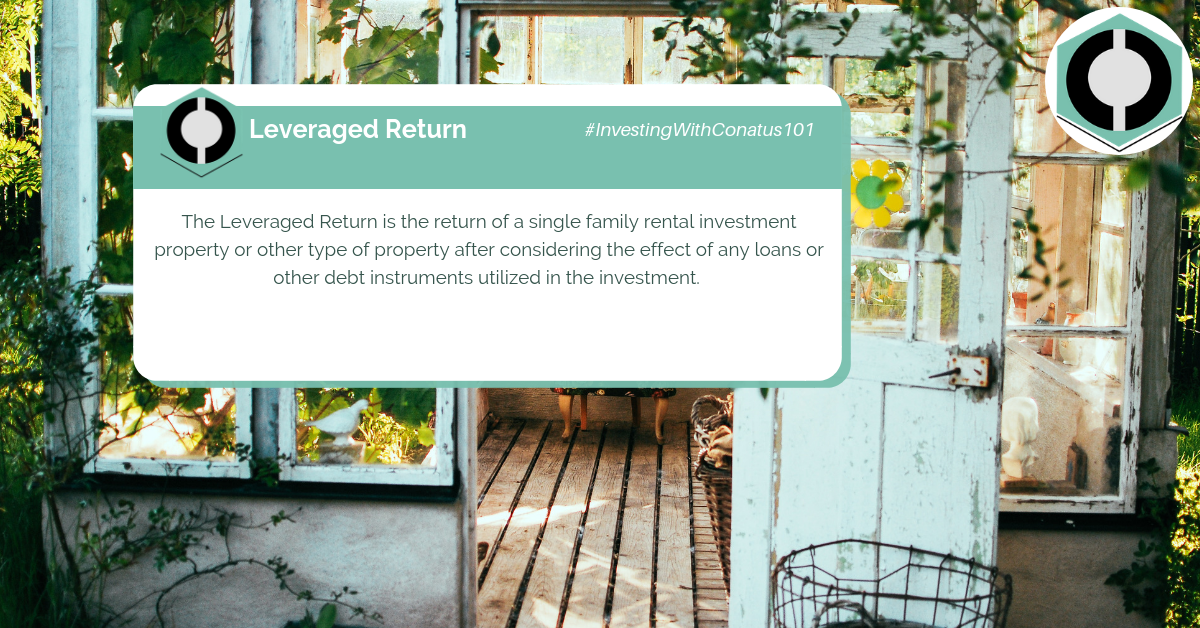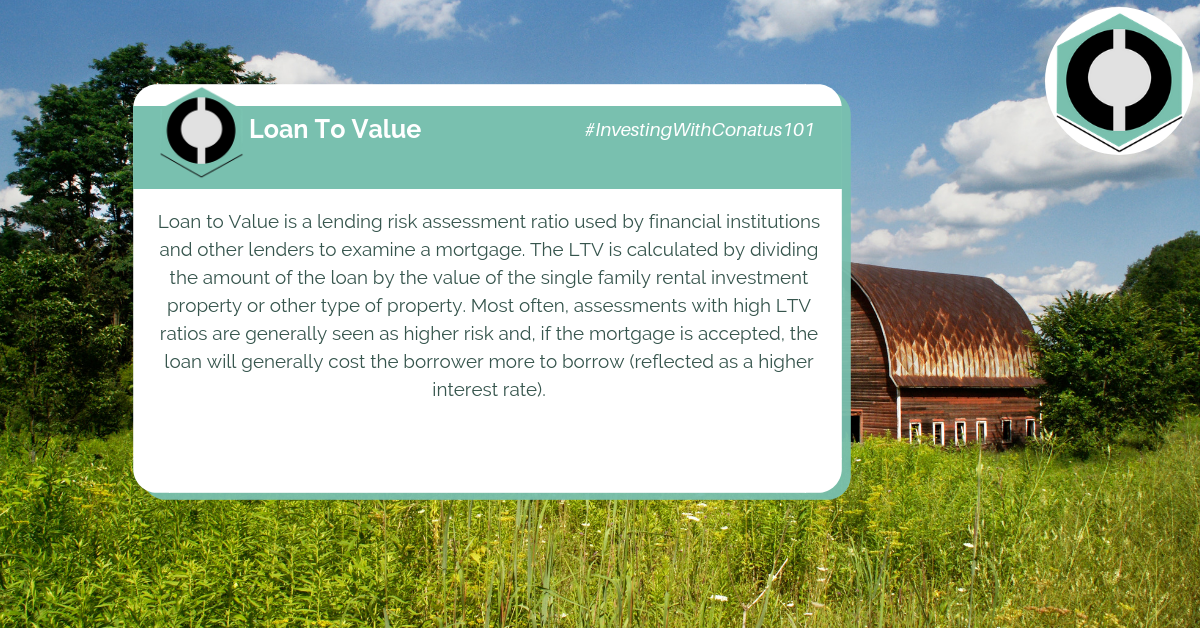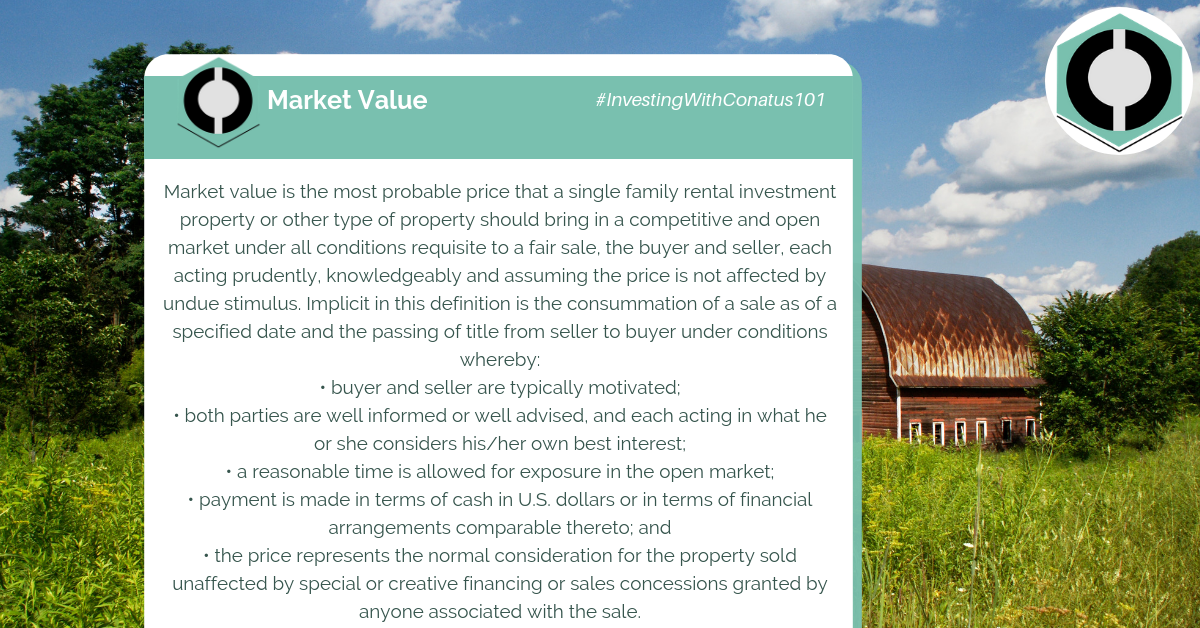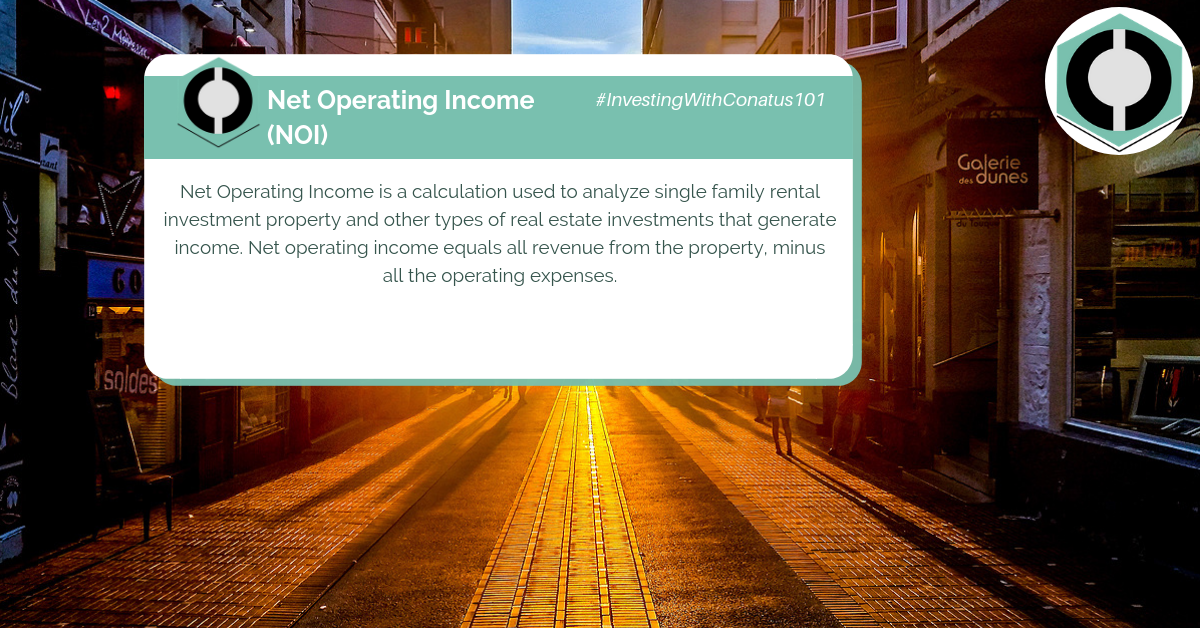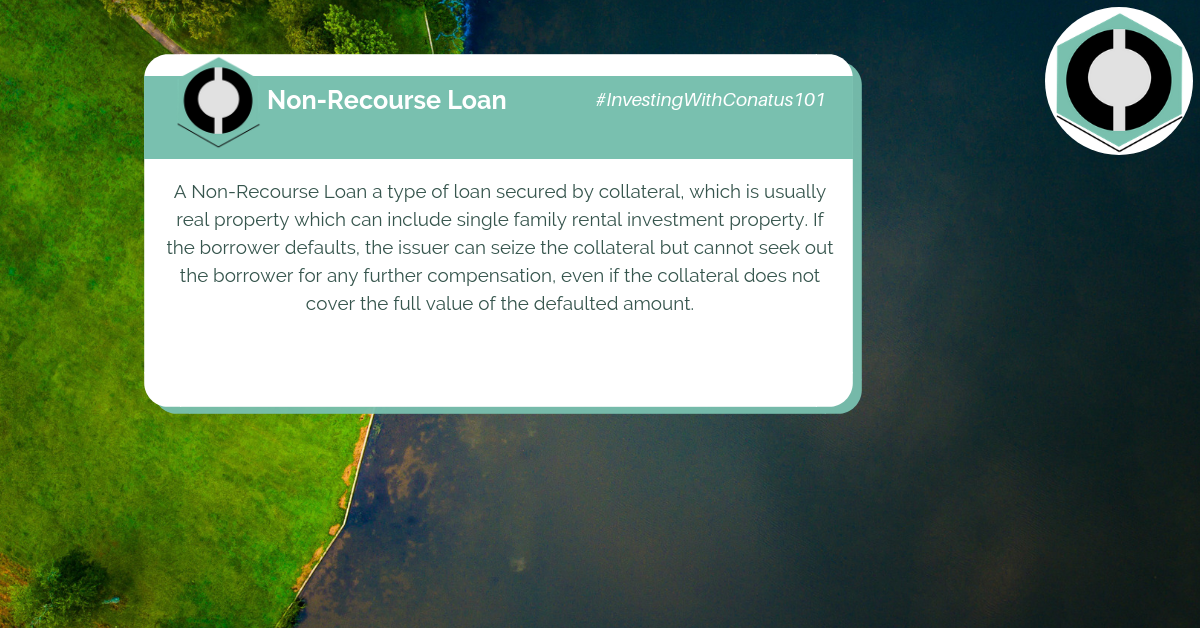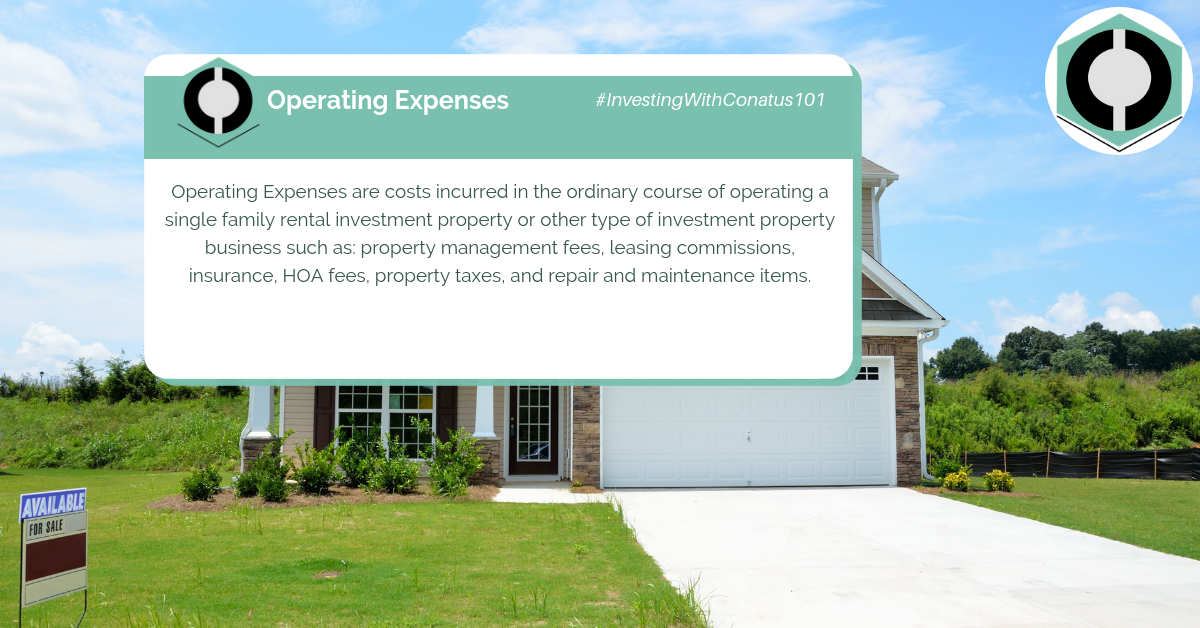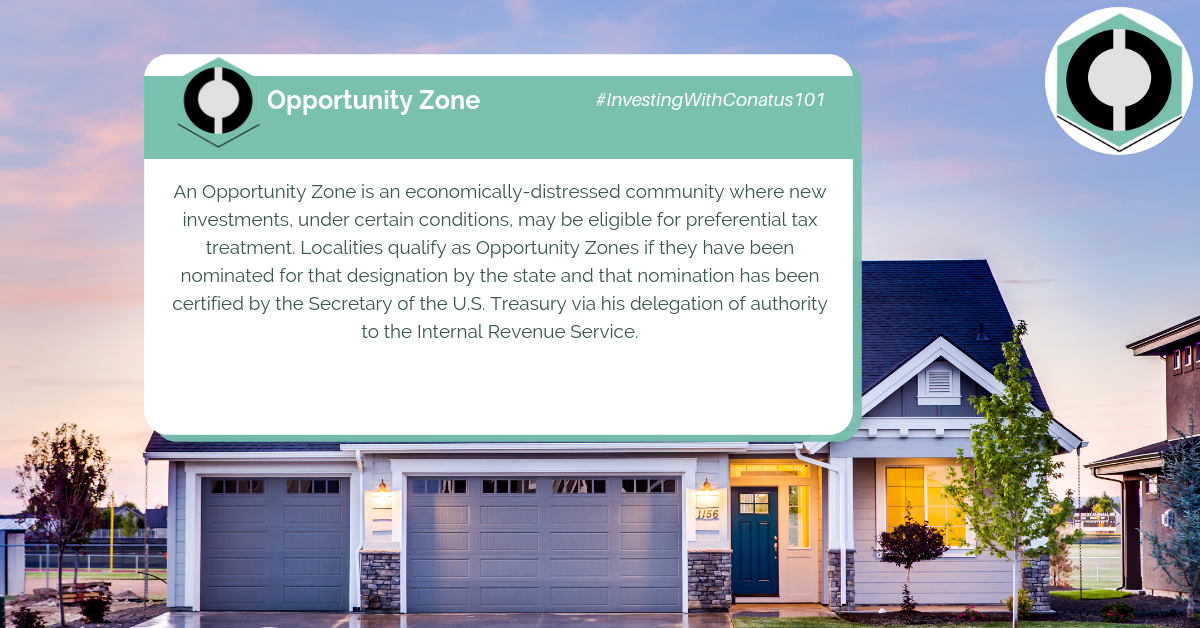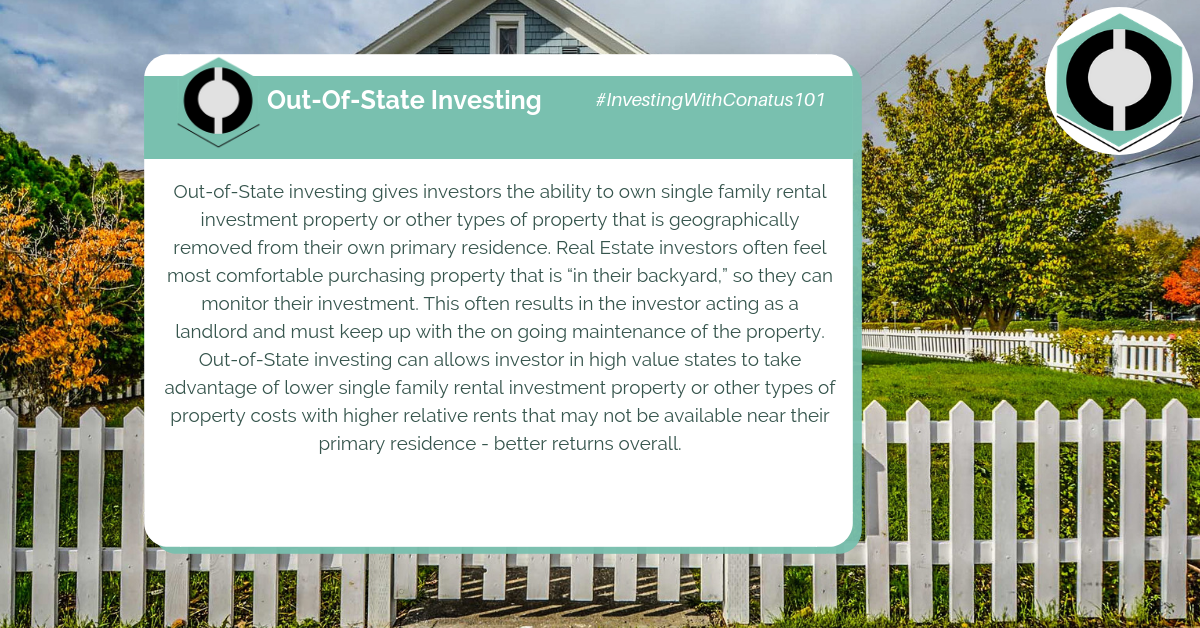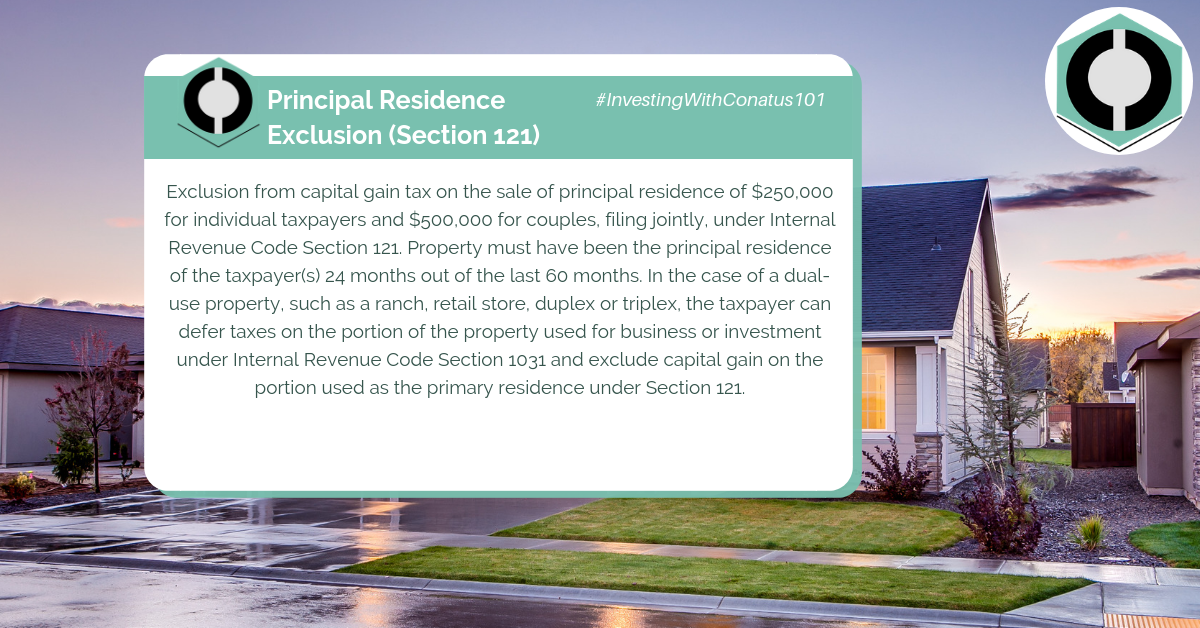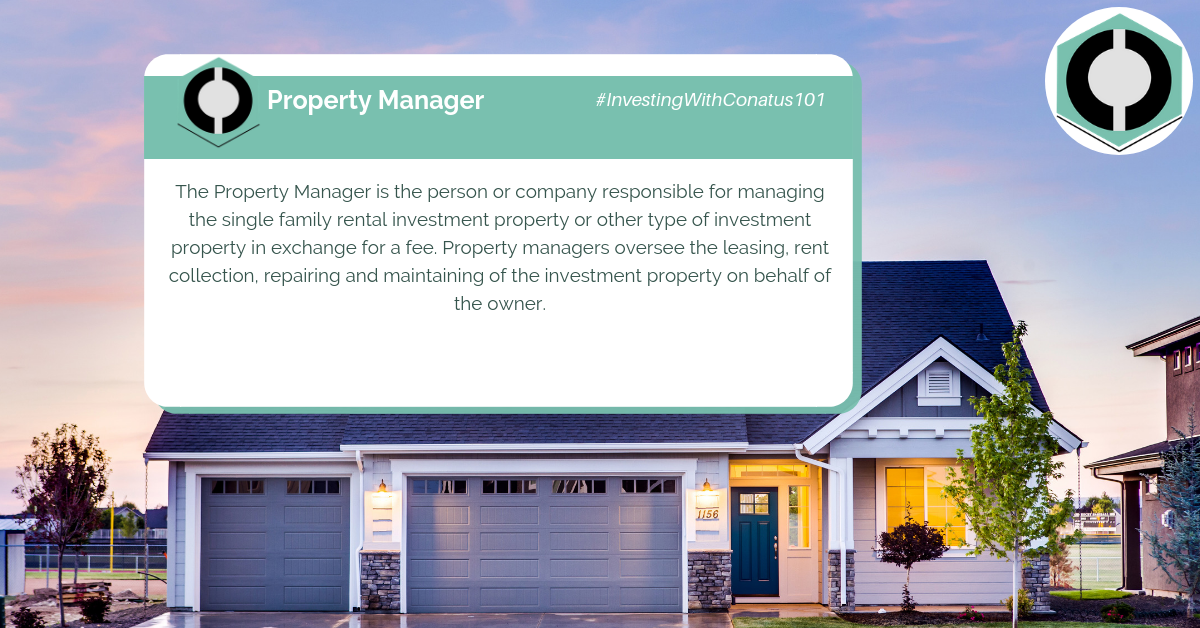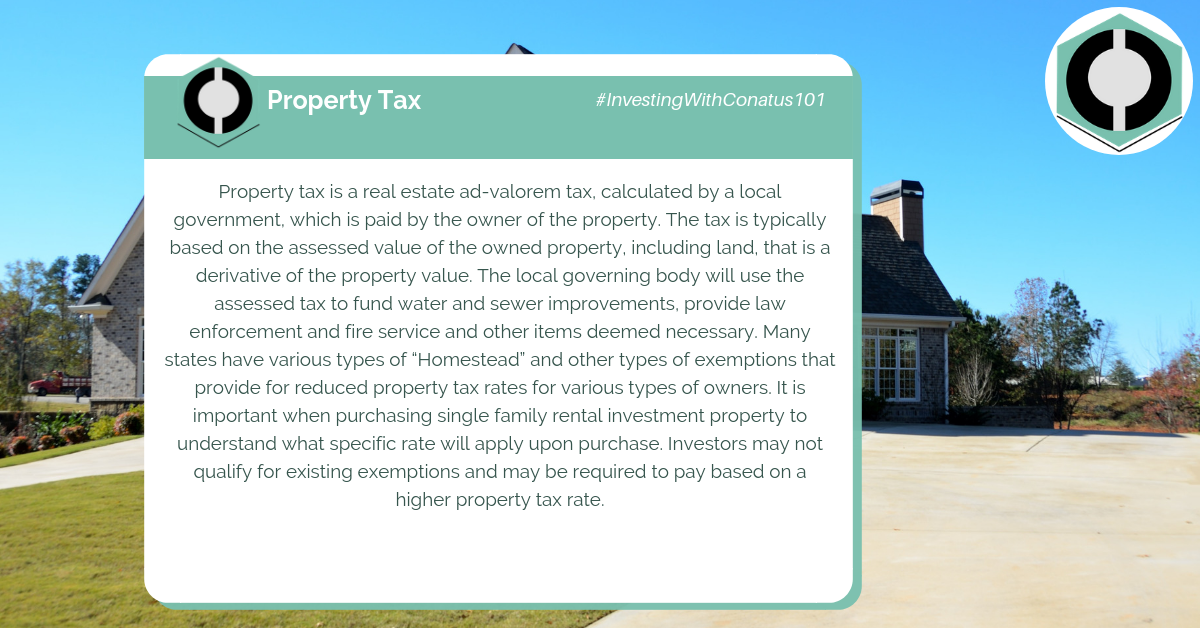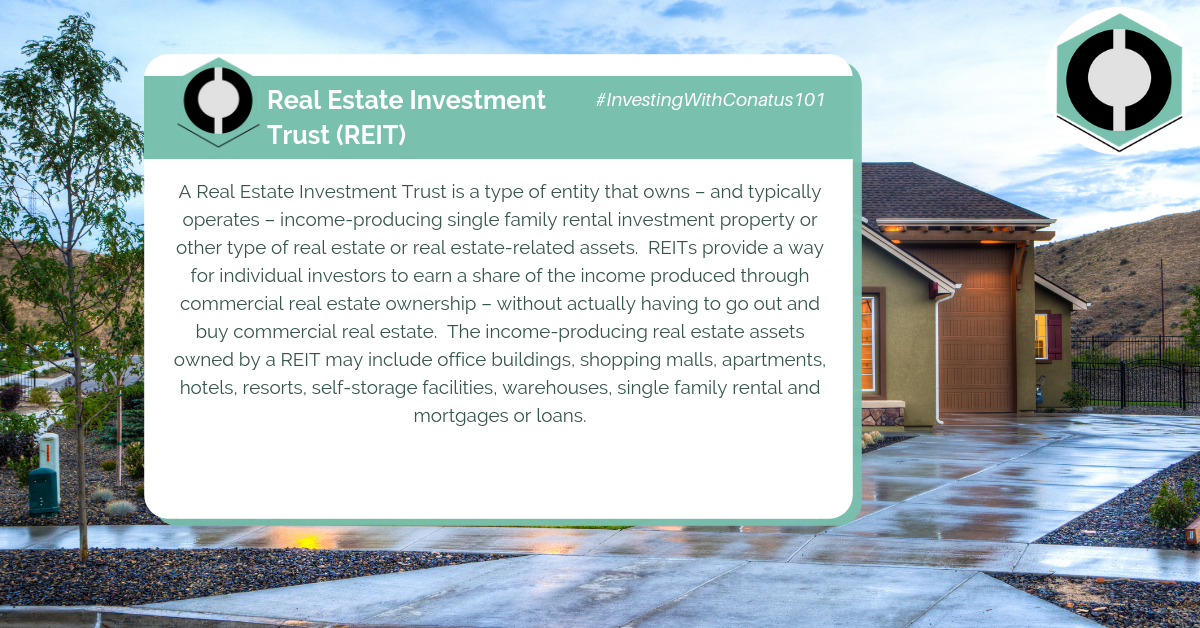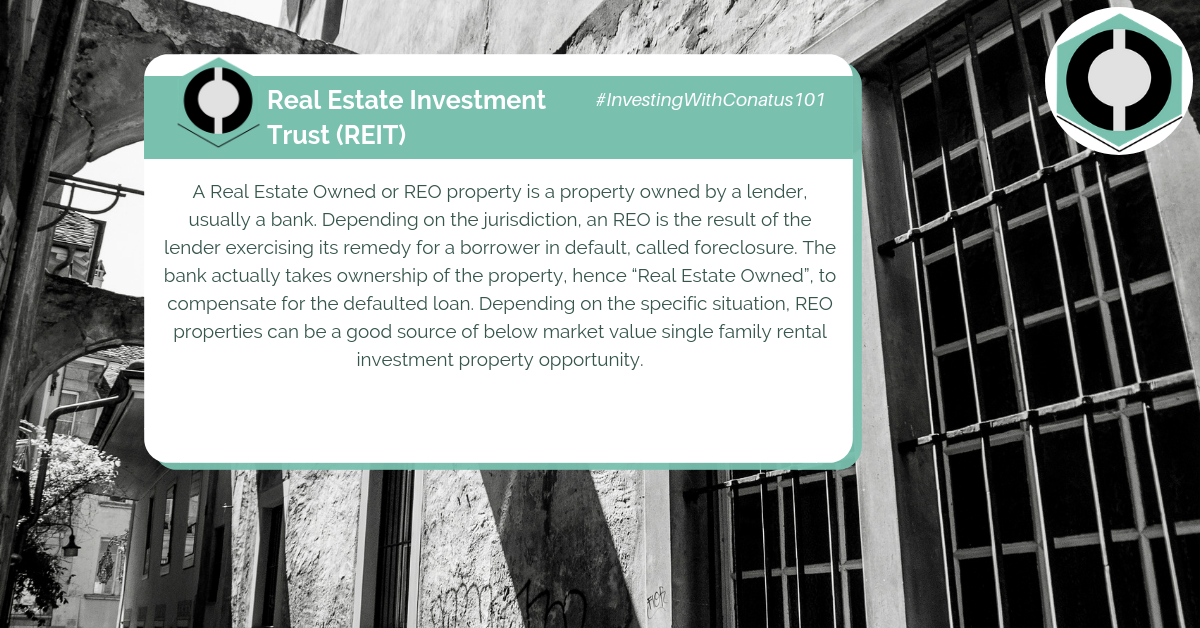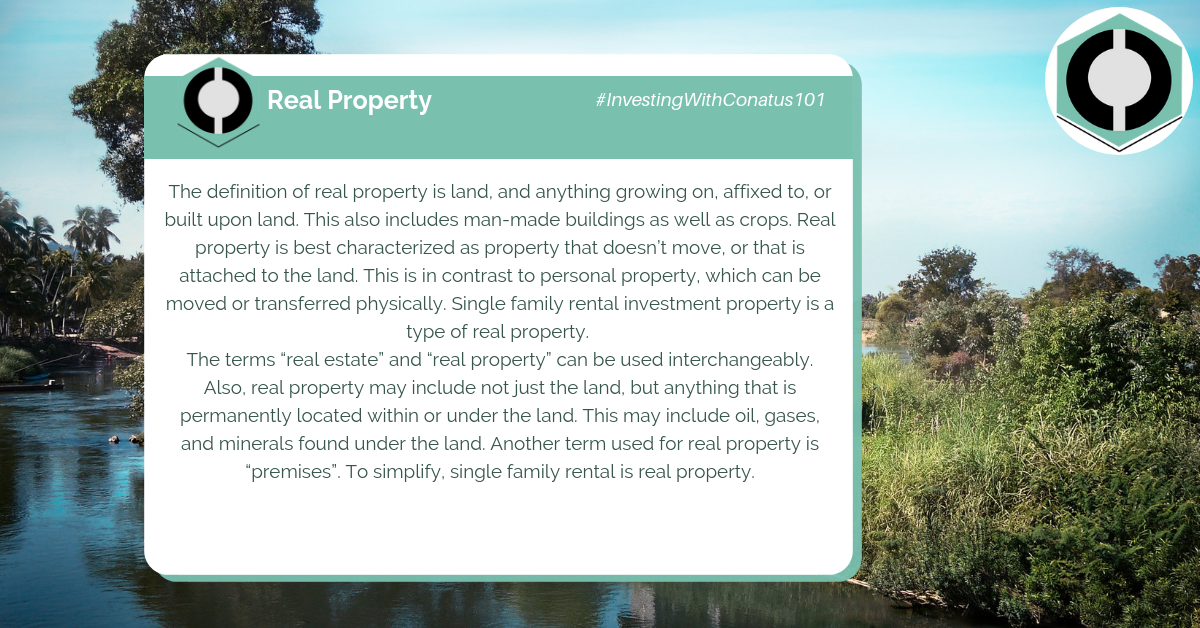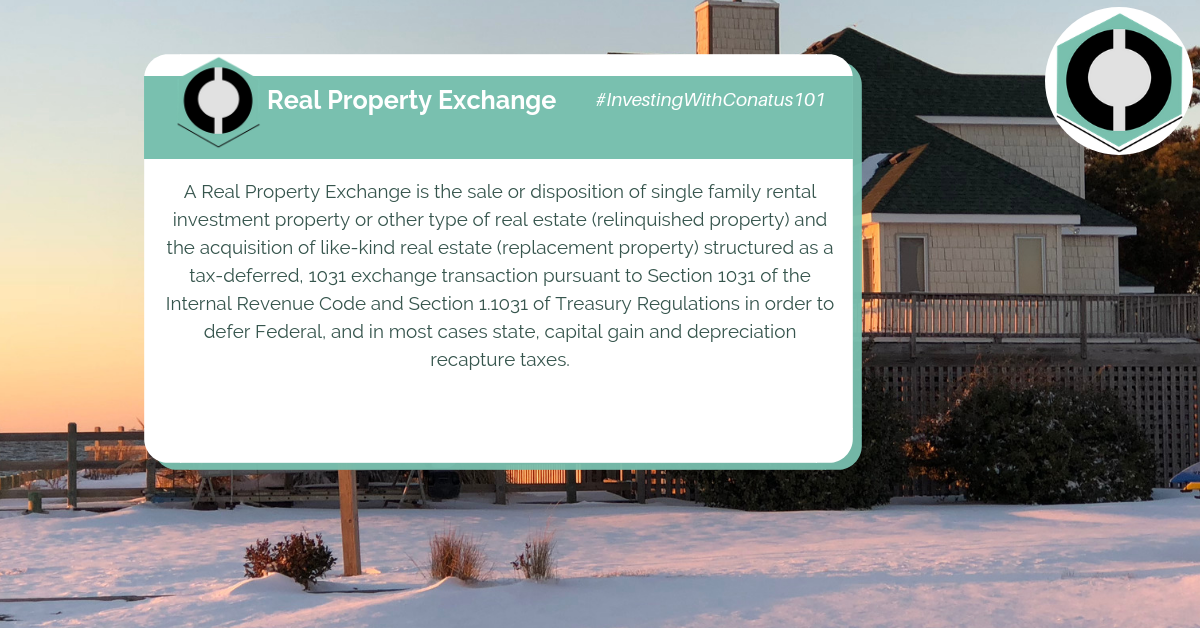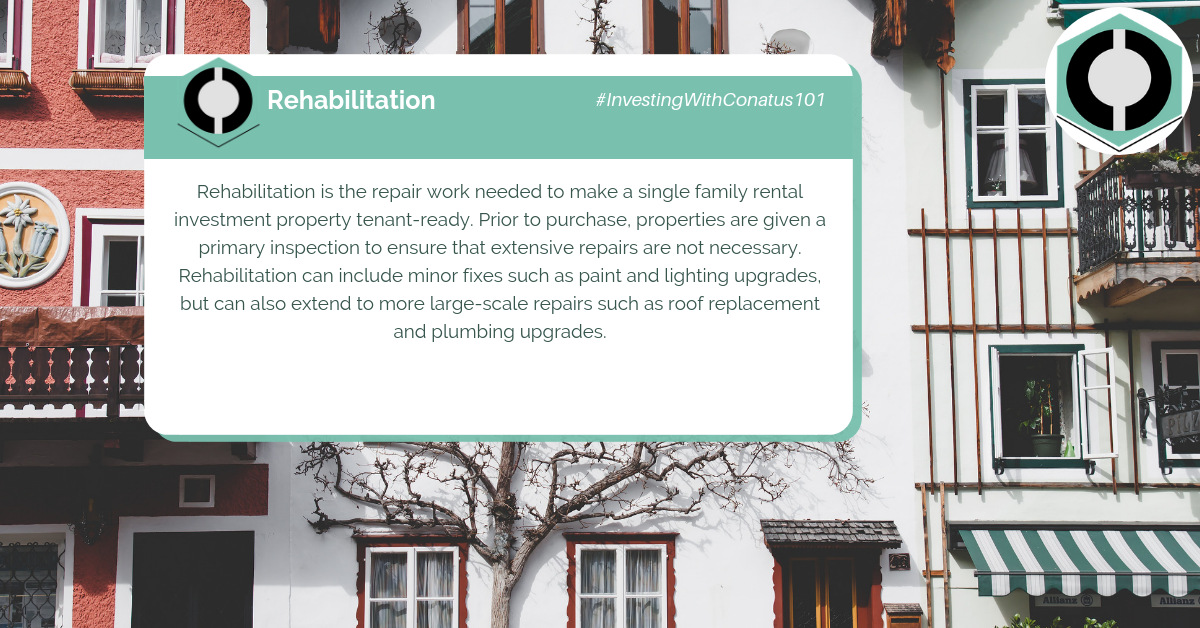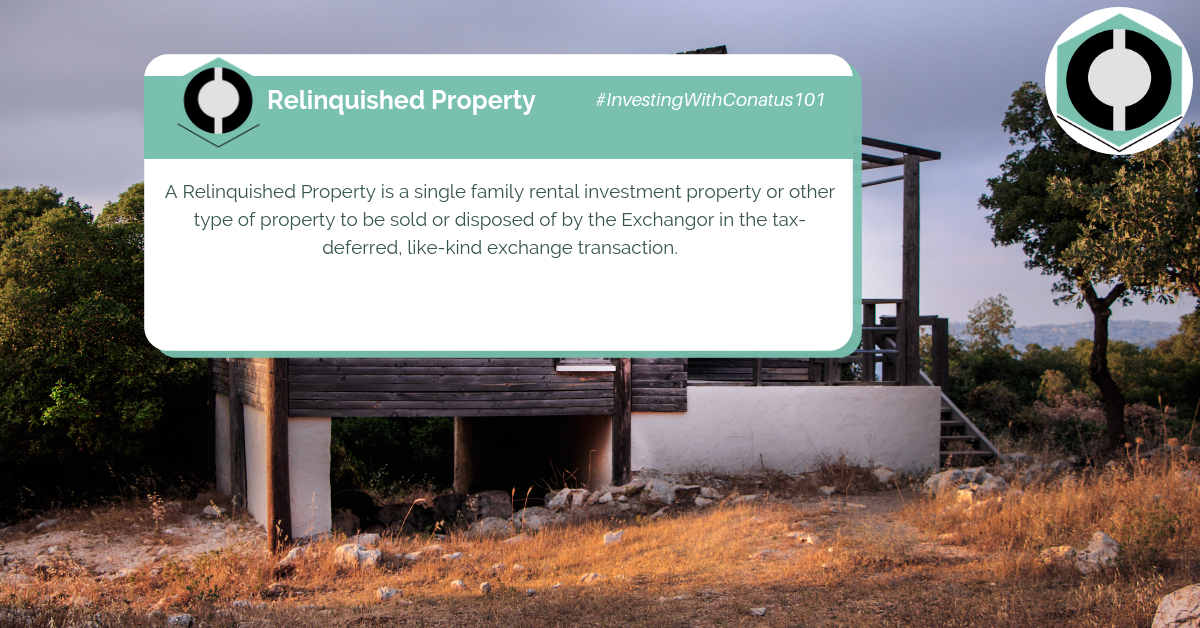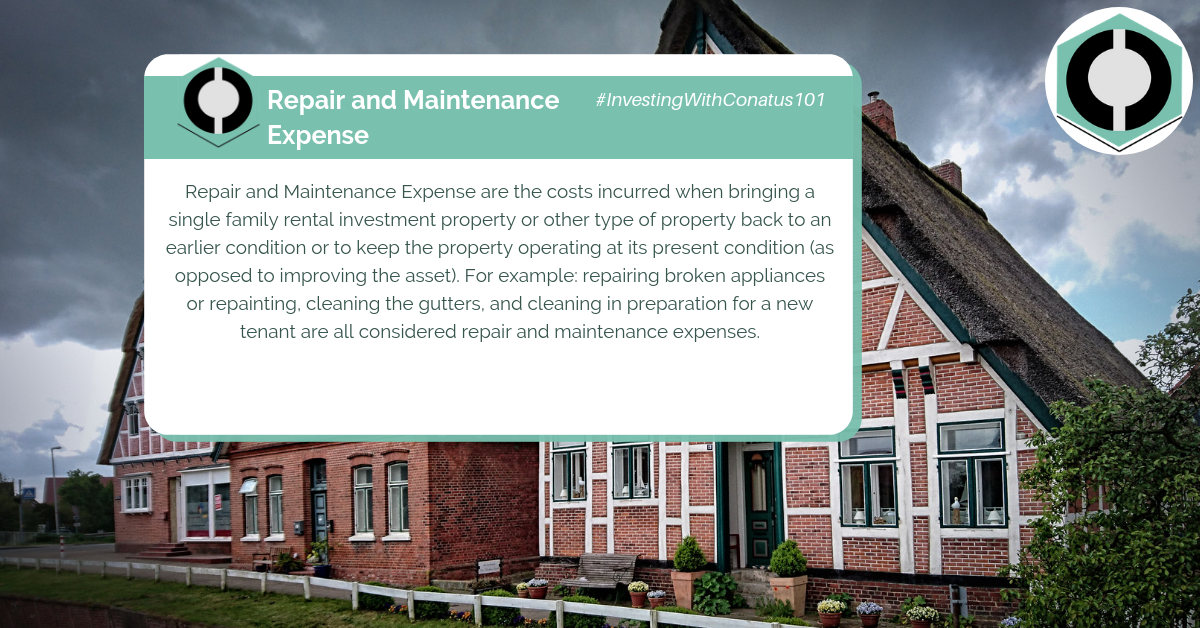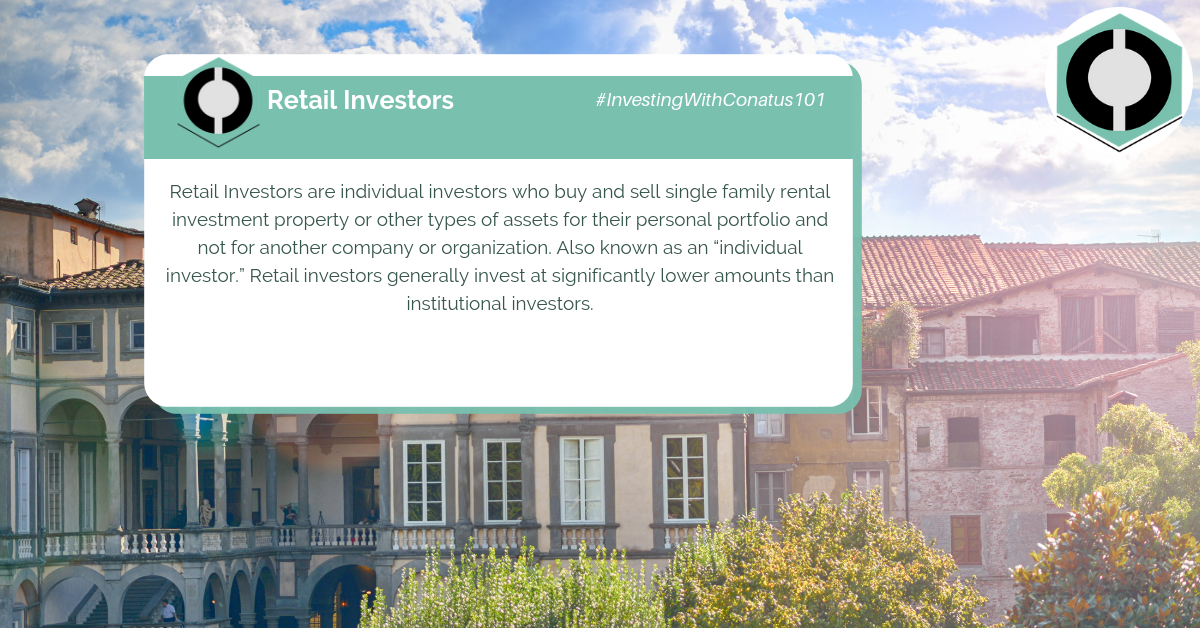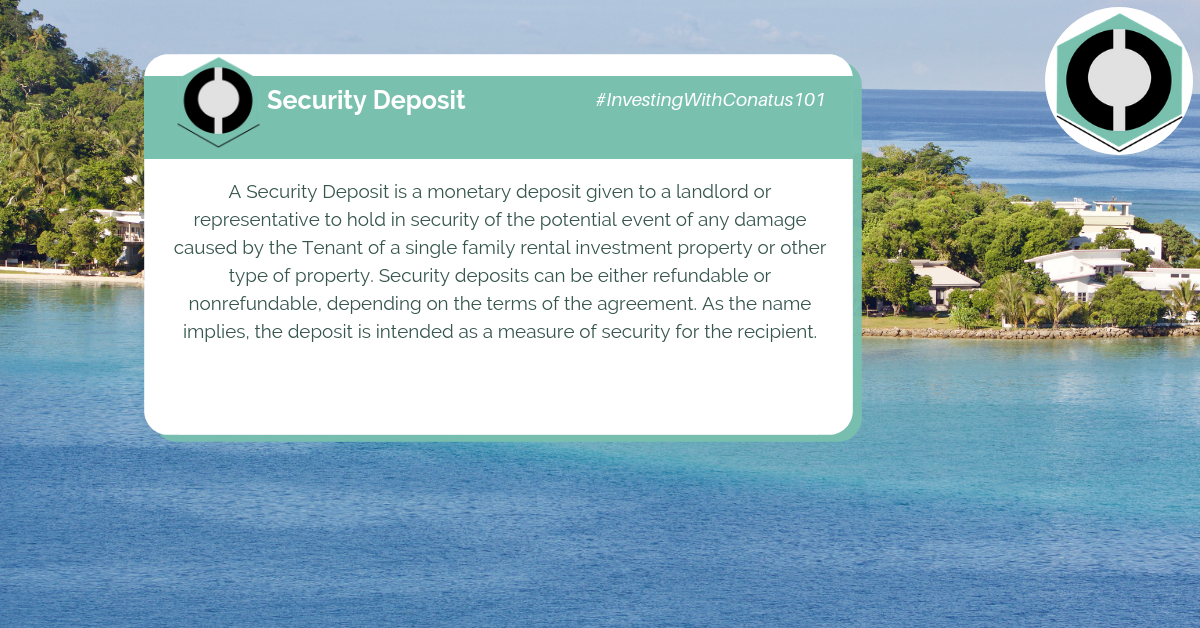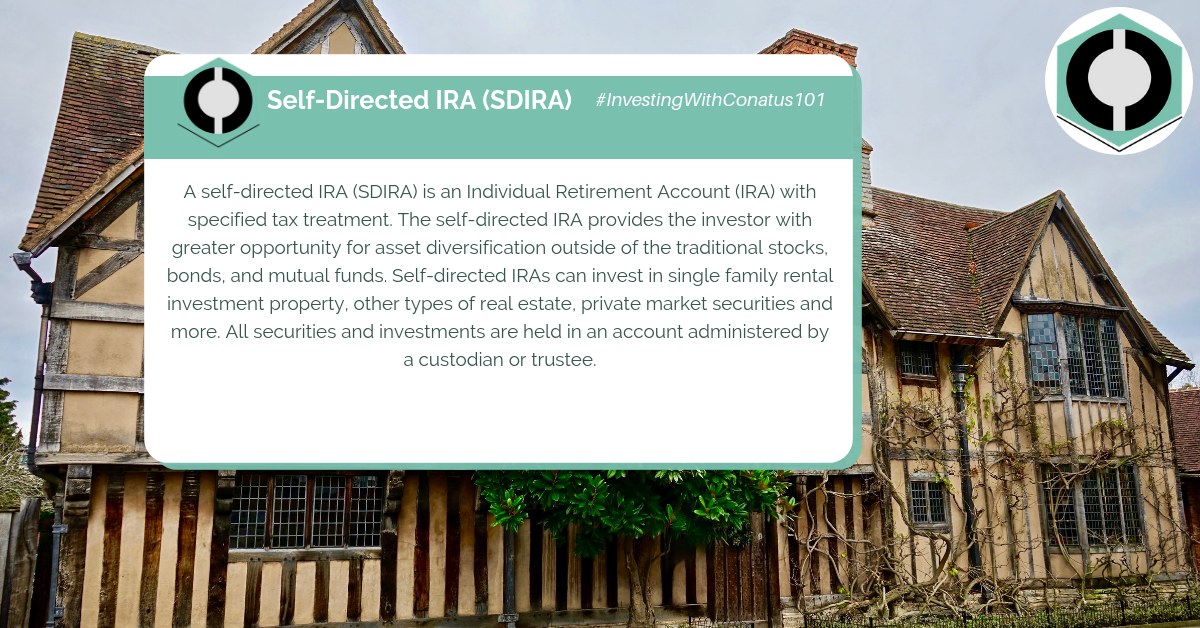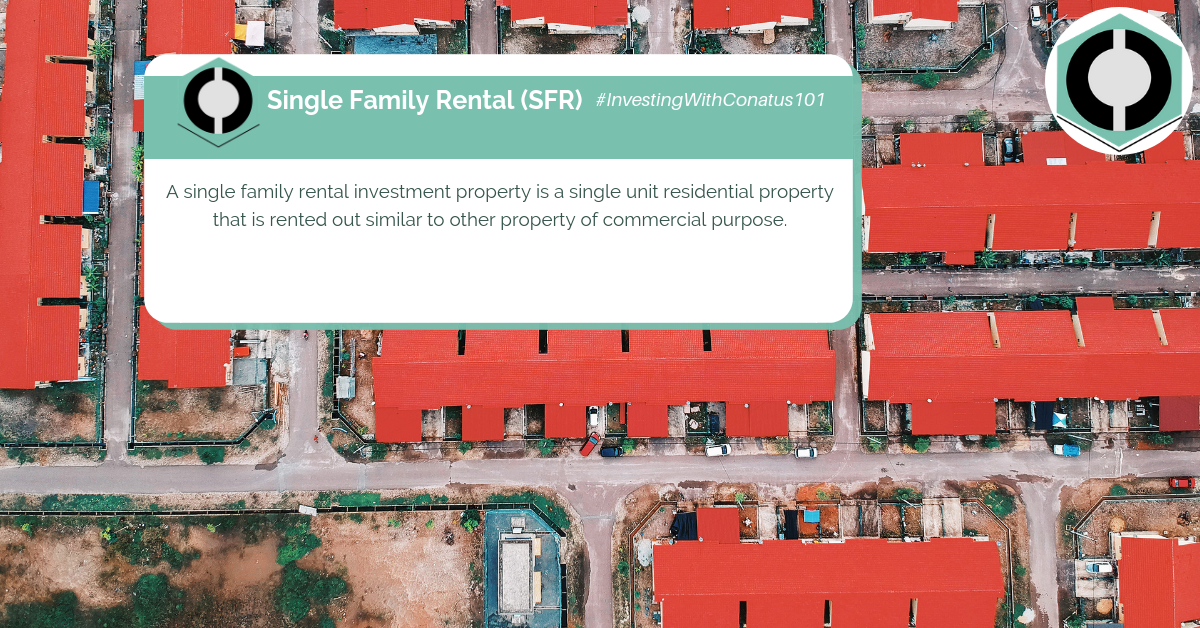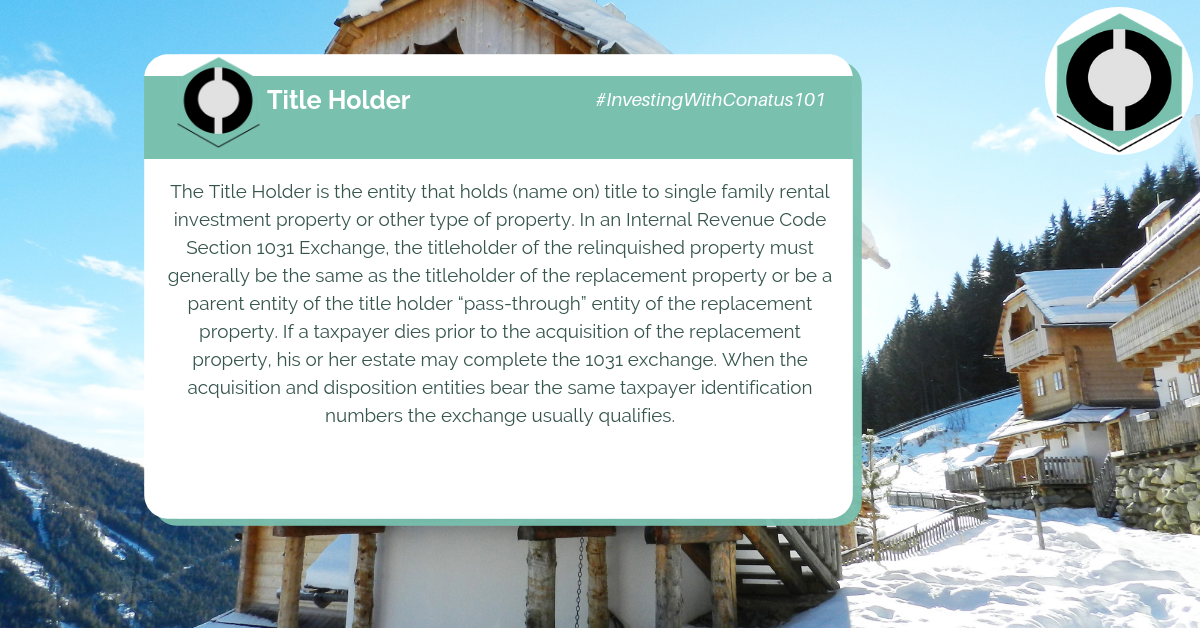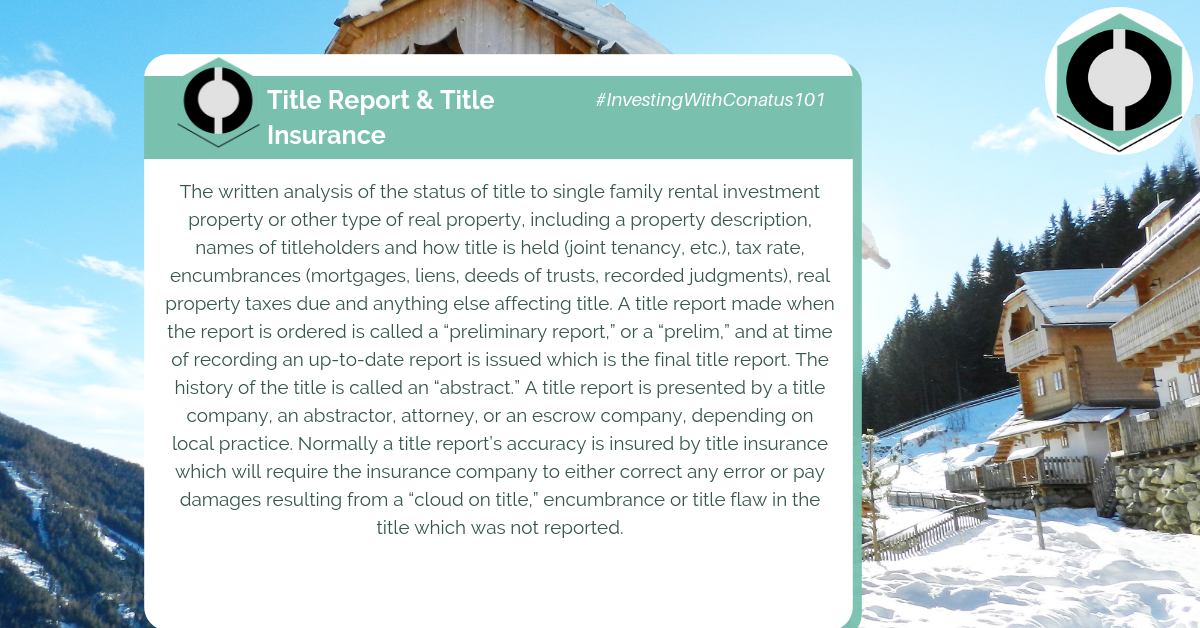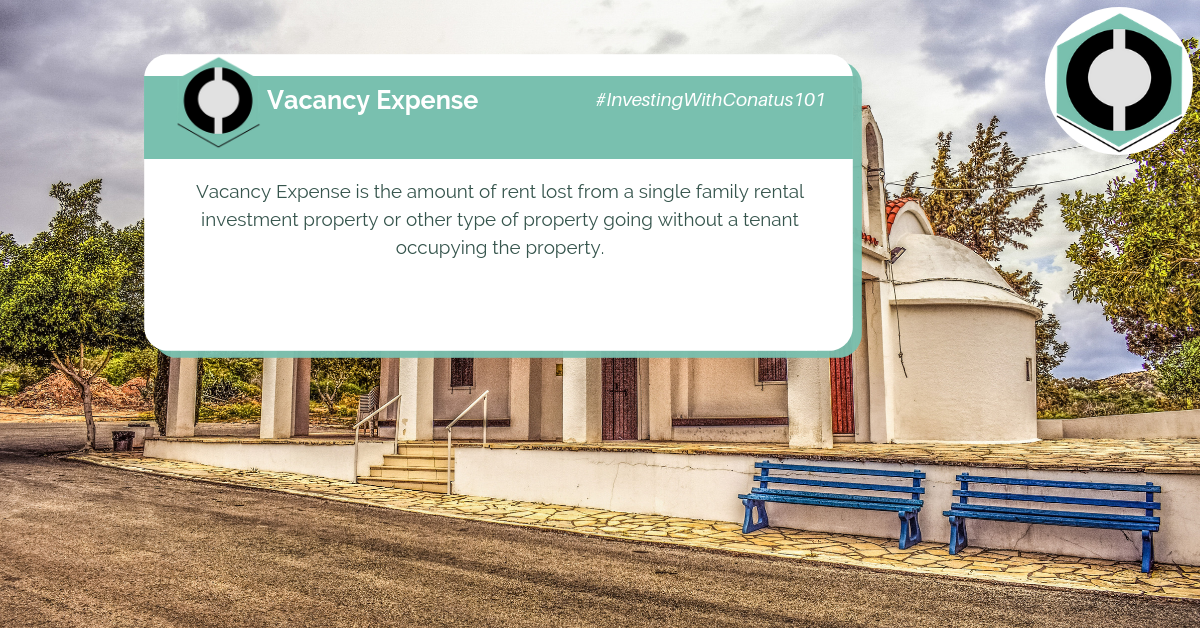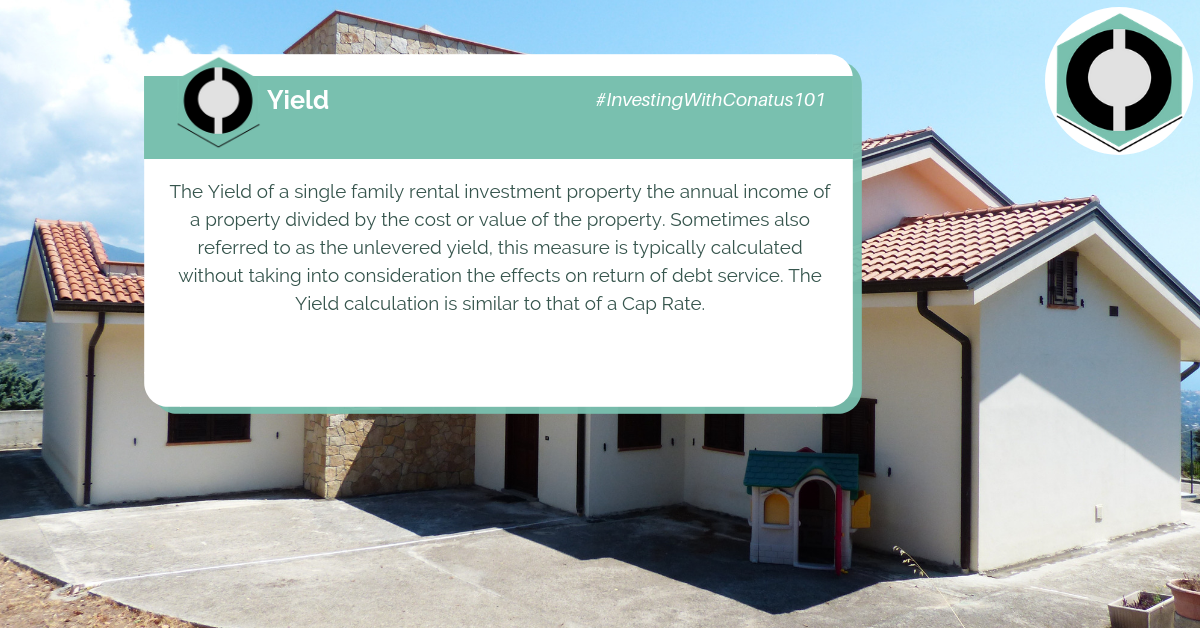Real Estate Investing Glossary
The Conatus Real Estate investing Glossary is one of the most visited sections of our website. Our glossary covers Real Estate terms and Financial Market terms, as well as terms used in Institutional Real Estate
Contact Conatus!
Call: 949-267-3990
Email: houses@conatusre.com
Investing With Conatus 101
The Conatus Real Estate Investing Glossary covers Real Estate terms and Financial Market terms, as well as terms used in Institutional Real Estate
1% RULE
The one percent rule refers to the rent to cost ratio a single family rental investment property must have in order to be profitable as a rule of thumb. While there are a number of expenses to keep in mind, the monthly rent on an investment property must be at least 1% of the total purchase cost to have a positive ROI and be considered a favorable investment asset. In more distressed times we have also experienced common use of the “2% rule.”
1031 Exchange
The sale or disposition of real property (relinquished property) and the acquisition of like-kind real estate (replacement property) structured as a tax-deferred, 1031 exchange transaction pursuant to Section 1031 of the Internal Revenue Code and Section 1.1031 of the Treasury Regulations in order to defer Federal, and in most cases state, capital gain and depreciation recapture taxes. 1031 exchanges can be utilized exchanging in and/or out of single family rental investment property.
ACCELERATED DEPRECIATION
A depreciation method that allows investors to deduct a greater portion of the cost of depreciable property in the first years after the property is placed in service, rather than spreading the cost evenly over the life of the asset. It is advisable to consult your CPA, tax attorney and/or cost segregation engineer. Recent changes to tax regulation has created enhanced potential for accelerated depreciation in single family rental investment property.
ACCOMMODATOR
An unrelated party who holds funds in escrow in the tax-deferred, 1031 exchange. The Accommodator has no economic interest except for any compensation (exchange fee) it may receive for acting as an Accommodator in facilitating the exchange as defined in Section 1031 of the Internal Revenue Code. The Accommodator is technically referred to as the Qualified Intermediary (QI), but is also known as the Accommodator, Intermediary, Facilitator. Conatus works in conjunction with the Accommodator to make sure all is buttoned in the exchange when the customer is purchasing single family rental investment property as replacement property.
ADJUSTED BASIS
The total cost of an investment property adjusted for depreciation and capital expenditures. Your CPA, Tax Attorney and/or cost segregation will have the most insight on specific calculation. This is a key metric utilized in the determination of capital gains (loss) in single family rental investment property and other asset types.
AFTER REPAIR VALUE (ARV)
This is an estimate, based on comparable properties near the subject property, of the value of the single family rental investment property or other property type after it has been repaired and remodeled.
Appraisal
A process of developing an opinion of Market Value for single family rental investment property and other types real estate property. Typically, the person that performs the appraisal is an authorized appraiser and will have a designation from a regulatory body governing the jurisdiction the appraiser operates within. Appraisals usually take one of three approaches to value: (i) cost approach, (ii) income approach and (iii) sales comparison approach.
HPA - Home Price Appreciation
HPA is an increase in the value of a single family rental investment property or home over a period of time. The increase can occur for various reasons: increased demand, weakening supply, changes in inflation, changes in interest rates or a myriad of other reasons. The opposite of depreciation – a decrease over time. The annual Home Price Appreciation (HPA) is the increase in the value of a property over the course of a year.
Balanced Exchange
A balanced exchange of single family rental investment property ensures that the taxpayer defers 100% of their taxes on capital gain and depreciation recapture. General requirements to achieve a balanced exchange:
- Acquire a replacement property that is equal to or greater than the relinquished property
- Reinvest all of the proceeds from the relinquished property in the replacement property
Incur debt on the replacement property that is equal to or greater than the debt on the replacement property or contribute cash to make up the deficiency.
Basis Point
A basis point (BPS) is a unit that is equal to 1/100th of 1%, in other words one basis point is equal to 0.01%, similarly a 1% change is equal to a 100 basis point change. In single family rental investment property the difference between a change in 1 basis point and a full percentage point in yield is huge.
Boot
Non-like-kind property (cash or other property) given by one party to another party in a tax-deferred, like-kind exchange that is taxable. Single family rental investment property can be a great way to eliminate boot in larger transactions because of its lower entry point.
Broker Price Opinion (BPO)
A valuation report used by lenders, investors, and Real Estate Agents to attribute value to a single family rental investment property or other type of property. The valuation analysis can be performed by a licensed appraiser, real estate agent or other person and takes into consideration comparables from local market activity and the condition of the home.
Capital Gain or Loss
The difference between the selling price of a single family rental investment property or other property (less selling cost) and its Adjusted Basis.
Compound Annual Growth Rate (CAGR)
The compound annual growth rate (CAGR) is a way to measure growth over multiple time periods. It can be considered the compounded growth rate from the initial single family rental investment property value to the ending investment value.
Cap Rate
Cap Rate or Capitalization rate is the percentage return calculated by dividing income by the property cost or value. This metric is utilized in single family rental investment property and other types of commercial real estate.
Capital Improvements
For land or buildings, improvements (also known as capital improvements) are the costs of permanently upgrading a single family rental investment property rather than maintaining or repairing it. Instead of being able to taking an expense deduction for the cost of improvements in the year paid, an investor adds the cost of the improvements to the basis of the property.
Capital Expenditures (CAPEX)
Capital Expenditures are generally related to upgrades or material improvements to a single family rental investment property or other property type (new appliances, a new roof, upgrades to existing facilities, etc) that will have a useful benefit beyond the current tax year. CAPEX does not include Repair and Maintenance (R&M) expenses.
Net Cash Flow
Net cash result of a single family rental investment property after subtracting all expenses from revenue and making debt service payments. May also be net of payment of any income taxes.
Cash On Cash
Cash on Cash is a measure of return on your Initial Investment in a single family rental investment property or other asset type, equal to your net cash flow after loan payments, divided by your Initial cash Investment amount (not including debt utilized at purchase.)
Clear Title
Title of single family rental investment property or other property type is considered clear when the title is without any kind of material lien or levy from creditors or other parties and poses no question as to its legal ownership. A title insurer will typically require clear title in almost all cases to issue a policy. The process of clearing title is typical among real estate transactions.
Cooperation Clause
Language to be included in the Purchase and Sale Contracts single family rental investment property or other property type for both relinquished and replacement property that indicates and discloses that the transaction is part of an intended tax-deferred, 1031 exchange transaction and requires that all parties cooperate in completing said exchange.
Community Property
All property acquired by a wife and husband during their marriage. Each spouse has a right to an equal interest in the property (Gifts and inheritances received by an individual spouse during the marriage are treated as separate property) Property acquired by the spouse prior to marriage, property acquired with separate property, or rents or profits generated from separate property are treated as separate property. Arizona, California, Idaho, Louisiana, Nevada, New Mexico, Texas, Washington, and Wisconsin are community property states. This can be relevant in a 1031 exchange of
Closing Costs
Closing Costs are expenses that buyers and sellers normally incur, over and above the price of the single family rental investment property or other property type, to complete a Real Estate transaction is considered Closing Costs. Potential costs incurred include: discount points, taxes, loan origination fees, title searches, appraisal fees, title insurance, surveys,deed-recording fees and/or other charges.
Cost Segregation Analysis
Identifies and reclassifies personal property assets to shorten the depreciation time for taxation purposes, which reduces current income tax obligations. Personal property assets include a building’s non-structural elements, exterior land improvements and indirect construction costs.The primary goal of a cost segregation study is to identify all construction-related costs that can be depreciated over a shorter tax life than the building. Personal property assets found in a cost segregation study generally include items that are affixed to the building but do not relate to the overall operation and maintenance of the building. Recent tax regulation changes have potentially increased the value of cost segregation studies of purchases of single family rental investment property.
Depreciation
Periodic wearing away of single family rental investment property or other property type over the property’s economic life. The I.R.S. provides for a method for investors and business owners to take a tax deduction on the amount of a property’s depreciation. Investors may be allowed a deduction on income tax return for the wearing away and expensing over time of property or assets – like investment properties. A depreciable asset is a capital expenditure in depreciable property used in a trade or business or held for the production of income and has a definite useful life of more than one year. Non-depreciable property includes vacant land. Recent tax regulation changes has affected how personal property may be depreciated.
Depreciation Recapture
Depreciation Recapture is the amount of gain resulting from the disposition of single family rental investment property or other property type that represents the recovery of depreciation expense that has been previously deducted on the Taxpayer’s (Exchangor’s) income tax returns. Leftover boot in a 1031 exchange can result in a federal tax rate of 25% on depreciation recapture plus any taxes owed at the state level.
Diligence
Diligence is an investigation of the property by the Buyer prior to committing to the purchase. Diligence on an Investment property may include: reviewing the lease and tenant information, checking title, reviewing an inspection to determine the condition of the property, changing various underwriting assumptions, reviewing valuation estimates, researching the local real estate market and the neighborhood.
Distributions / Dividend
Distributions / Dividends are payments made to Investors periodically (over the course of a calendar year) from profits of a single family rental investment property or other asset type.
Down Payment
A Down Payment is the portion of the single family rental investment property or other type of property price paid at the time of purchase in cash when using leverage.
Equity
Equity is the value built up in a single family rental investment property or other type of property that represents the current market value of the house less any remaining mortgage balance. This value can build up over time as the property owner pays off the mortgage and the market value of the property appreciates.
Escrow Agent
An Escrow Agent coordinates the transfer of a single family rental investment property or other type of property from one party to another. The escrow agent will prepare closing documents and examine documents to make sure that the terms of the sale are met on each end, serving both the buyer and seller in the transaction. The Escrow Agent activity may be executed by different parties depending on the state.
Gross Yield
The yield on a single family rental investment property before the deduction of taxes and expenses is the gross yield and is expressed in percentage terms. It is calculated as the annual rental income on a single family rental investment property to taxes and expenses, divided by the current price of the single family rental investment property.
Exchange
The sale or disposition of single family rental investment property or other real estate (relinquished property) and the acquisition of like-kind real estate or personal property (replacement property) structured as a tax-deferred, 1031 exchange transaction pursuant to Section 1031 of the Internal Revenue Code and Section 1.1031 of the Treasury Regulations in order to defer Federal, and in most cases state, capital gain and depreciation recapture taxes.
Exchange Agreement
An Exchange agreement is a written agreement between the Qualified Intermediary (QI) and Exchangor setting forth the Exchangor’s intent to exchange relinquished single family rental investment property or other type of property for replacement property, as well as the terms, conditions and responsibilities of each party pursuant to the tax-deferred, like-kind exchange transaction.
Exchange Period
The Exchange Period is the period of time during which the Exchangor must complete the acquisition of the replacement single family rental investment property or other type of property in their tax-deferred, 1031 exchange transaction. The exchange period is 180 calendar days from the transfer of the Exchangor’s first relinquished property, or the due date (including extensions) of the Exchangor’s income tax return for the year in which the tax-deferred, like-kind exchange transaction took place, whichever is earlier – not extended due to holidays or weekends. Important to note though that the Identification period is only 45 days.
Exchangor
The Exchange Period is the period of time during which the Exchangor must complete the acquisition of the replacement single family rental investment property or other type of property in their tax-deferred, 1031 exchange transaction. The exchange period is 180 calendar days from the transfer of the Exchangor’s first relinquished property, or the due date (including extensions) of the Exchangor’s income tax return for the year in which the tax-deferred, like-kind exchange transaction took place, whichever is earlier – not extended due to holidays or weekends. Important to note though that the Identification period is only 45 days.
Gross Multiplier
The Gross Multiplier is a variation on the Income-Capitalization Method of appraising single family rental investment property or other type of property. The Gross Multiplier approach is a way to obtain a fast, rough estimate of a property’s value. In this approach, a monthly or annual number is multiplied by a property’s gross income to obtain the property’s value. Dividing the sale price of a similar property by its gross income provides its gross multiplier.
Home Inspection
A Home Inspection is an examination of a single family rental investment property or other type of property’s condition, typically performed in connection with the property’s sale. A home inspector can assess the condition of a property’s roof, plumbing, electrical work, foundation, heating and cooling systems, water and sewage, and some fire and safety issues. The home inspector will also look for evidence of insect, water or fire damage, or any other issue that may affect the condition of the property.
Home Owners Association (HOA)
A Home Owners Association is an organization in a subdivision, planned community, or condominium that makes and enforces rules for the properties in its jurisdiction. Properties that are in an association have either monthly, quarterly, or annual HOA fees which are used to provide or maintain common amenities like sidewalks and neighborhood parks. It is important to note whether the HOA allows single family rental investment property prior to purchase.
Identification Period
The Identification Period is the period of time during which the Exchangor must identify potential replacement single family rental investment property or other types of properties in his or her tax-deferred, 1031 exchange. The period is 45 calendar days from the transfer of the Exchangor’s relinquished property – not extended due to holidays or weekends.
Income Property
Income Property can be single family rental investment property or other type of property developed or bought to earn income through Rental income or home price appreciation. Income property can be commercial or residential. Residential income property is commonly referred to as “Non-owner occupied.”
Initial Investment
The Initial Investment is the estimated amount of capital needed to initially purchase the
Insurance
An insurance policy that includes coverage for a comprehensive list of causes of loss and replacement cost settlement. Landlord policies sometimes provide coverage for lost rent in the event a covered loss occurs on a
Intermediary
An Intermediary is an unrelated party who participates in the tax-deferred, 1031 exchange to facilitate the disposition of the Exchangor’s relinquished
Internal Revenue Code 1031
Section 1031 of the Internal Revenue Code allows an
Internal Rate of Return (IRR)
The Internal Rate of Return (IRR) is the measurement of annualized net return on an equity investment in
Investment Property
A
IRA Investing
IRA investing refers to using your IRA or retirement account to invest in
IRA investing allows Investors to transfer funds to a self-directed IRA to purchase Real Estate. There are specific requirements that must be satisfied in order to properly make investments out of an IRA.
Lease
A lease is a contract in which, for a payment of rent, the party entitled to the possession of the
Leasing Fee (Commission)
A leasing fee is paid to the leasing agent or property manager when they sign a lease with a new tenant on a
Leveraged Return
The Leveraged Return is the return of a single family rental investment property or
Like-Kind Exchange
A Like-Kind Exchange is the sale or disposition of
Loan To Value
Loan to Value is a lending risk assessment ratio used by financial institutions and other lenders to examine a mortgage. The LTV is calculated by dividing the amount of the loan by the value of the
Market Value
Market value is the most probable price that a
- buyer and seller are typically motivated;
- both parties are well informed or well advised, and each acting in what he or she considers his/her own best interest;
- a reasonable time is allowed for exposure in the open market;
- payment is made in terms of cash in U.S. dollars or in terms of financial arrangements comparable thereto; and
- the price represents the normal consideration for the property sold unaffected by special or creative financing or sales concessions granted by anyone associated with the sale.
Mortgage Loan
A Mortgage Loan is a legal agreement by which a bank or other creditor lends money at interest in exchange for taking
Net Operating Income (NOI)
Net Operating Income is a calculation used to analyze
Non-Recourse Loan
A Non-Recourse
Operating Expenses
Operating Expenses are costs incurred in the ordinary course of operating a
Opportunity Zone
Operating Expenses are costs incurred in the ordinary course of operating a
Out-Of-State Investing
Out-of-State investing gives investors the ability to own single family rental investment property or other types of property that
Out-of-State investing can allows
Principal Residence Exclusion (Section 121)
A Principal Residence Exclusion (Section 121) exclusion from capital gain tax on the sale of principal residence of $250,000 for individual taxpayers and $500,000 for couples, filing jointly, under Internal Revenue Code Section 121.
Property Manager
The Property Manager is the person or company responsible for managing the
Property Tax
Property tax is a real estate ad-valorem tax, calculated by a local government, which is paid by the owner of the property. The tax is typically based on the assessed value of the owned property, including land, that is a derivative of the property value. The local governing body will use the assessed tax to fund water and sewer improvements, provide law enforcement and fire service and other items deemed necessary. Many states have various types of “Homestead” and other types of exemptions that provide for reduced property tax rates for various types of owners. It is important when purchasing
Qualified Intermediary
A Qualified Intermediary is an unrelated party who participates in the tax-deferred, 1031 exchange to facilitate the disposition of the
Real Estate Investment Trust (REIT)
A Real Estate Investment Trust is a type of entity that owns – and typically operates – income-producing
Real Estate Owned (REO)
A Real Estate Owned or REO property is a property owned by a lender, usually a bank. Depending on the jurisdiction, an REO is the result of the lender exercising its remedy for a borrower in default, called foreclosure. The bank actually takes ownership of the property, hence “Real Estate Owned”, to compensate for the defaulted loan. Depending on the specific situation, REO properties can be a good source of below market value
Real Property
The definition of real property is land, and anything growing on, affixed to, or built upon land. This also includes man-made buildings as well as crops. Real property is best characterized as property that doesn’t move, or that is attached to the land. This is in contrast to personal property, which can be moved or transferred physically.
The terms “real estate” and “real property” can be used interchangeably. Also, real property may include not just the land, but anything that is permanently located within or under the land. This may include oil, gases, and minerals found under the land. Another term used for real property is “premises”. To simplify,
Real Property Exchange
A Real Property Exchange is the sale or disposition of single family rental investment property or other type of real estate (relinquished property) and the acquisition of like-kind real estate (replacement property) structured as a tax-deferred, 1031 exchange transaction pursuant to Section 1031 of the Internal Revenue Code and Section 1.1031 of Treasury Regulations in order to defer Federal, and in most cases state, capital gain and depreciation recapture taxes.
Regulation D
Regulation D permits
Rehabilitation
Rehabilitation is the repair work needed to make a
Rehabilitation can include minor fixes such as paint and lighting upgrades, but can also extend to more large-scale repairs such as roof replacement and plumbing upgrades.
Relinquished Property
A Relinquished Property is a single family rental investment property or
Replacement Property
A Replacement Property is a like-kind
Repair and Maintenance Expense
Repair and Maintenance Expense are the costs incurred when bringing a
Retail Investors
Retail Investors are individual investors who buy and sell
Security Deposit
A Security Deposit is a monetary deposit given to a landlord or representative to hold in
Self Directed IRA (SDIRA)
A self-directed IRA (SDIRA) is an Individual Retirement Account (IRA) with specified tax treatment. The self-directed IRA provides the investor with greater opportunity for asset diversification outside of the traditional stocks, bonds, and mutual funds. Self-directed IRAs can invest in
Single Family Rental (SFR)
A
Title Holder
The Title Holder is the entity that holds (name on) title to
Title Report and Title Insurance
The written analysis of the status of title to
Trust
A trust is a fiduciary relationship in which one party, known as a trustor, gives another party, the trustee, the right to hold title to
Trustee
A Trustee is an individual or institution appointed to administer a trust for its beneficiaries.
Vacancy Expense
Vacancy Expense is the amount of rent lost from a
Yield
The Yield of a single family rental investment property the annual income of a property divided by the cost or value of the property. Sometimes also referred to as the
Ready to Get Higher Yields?
Conatus Real Estate specializes in sourcing Single Family Rental properties at attractive yields in high quality tenant segments nationwide for investors of all sizes.


